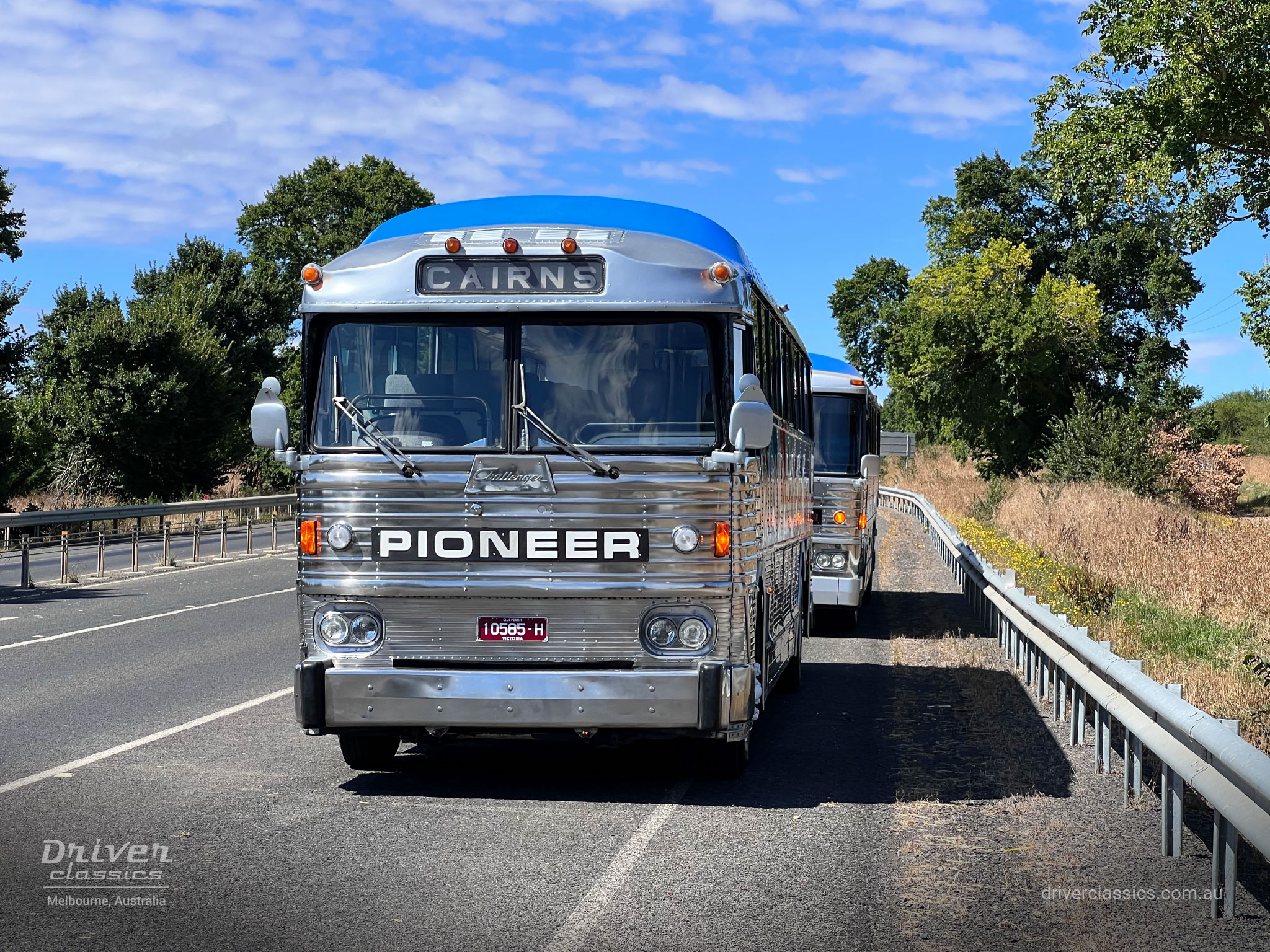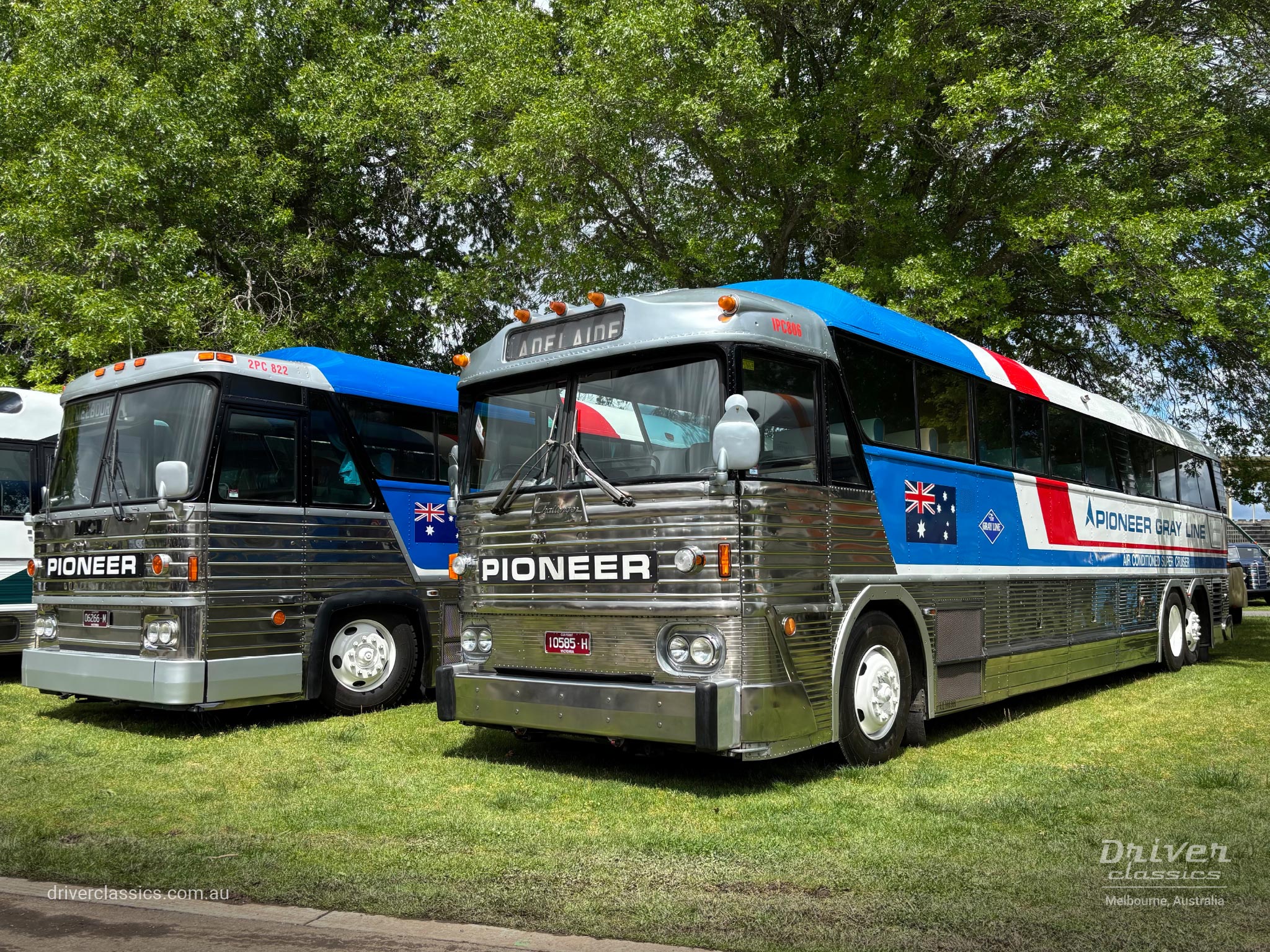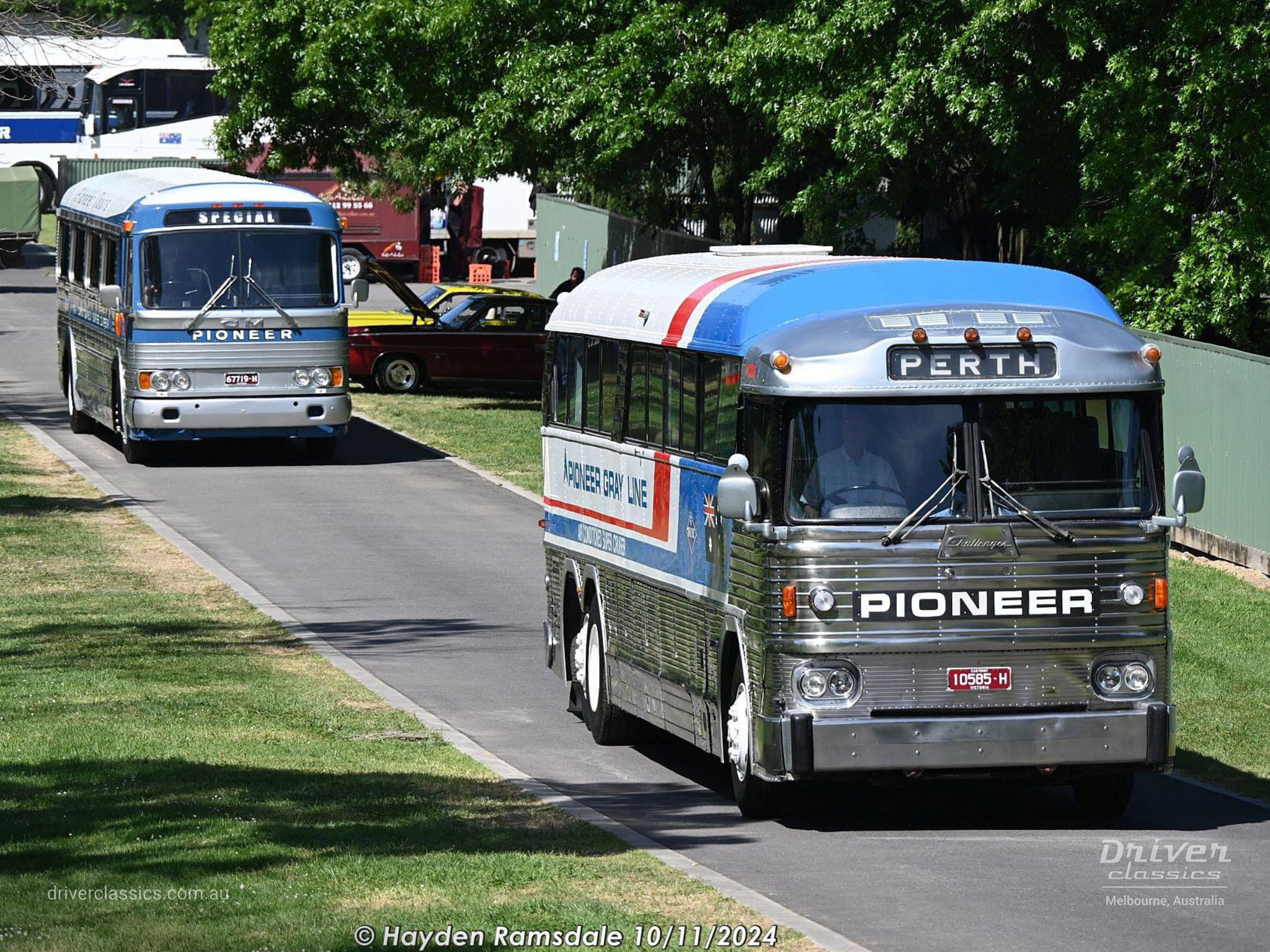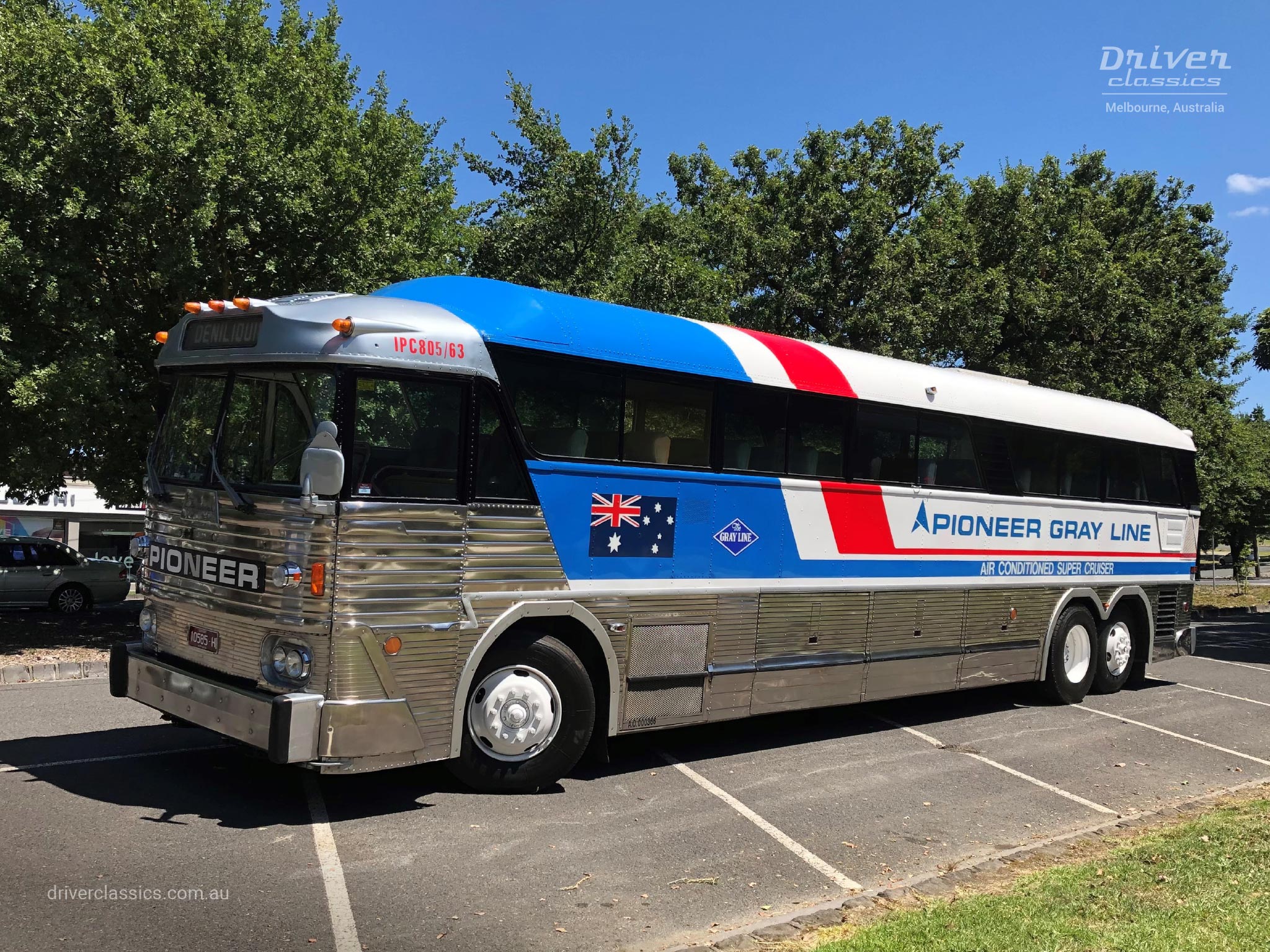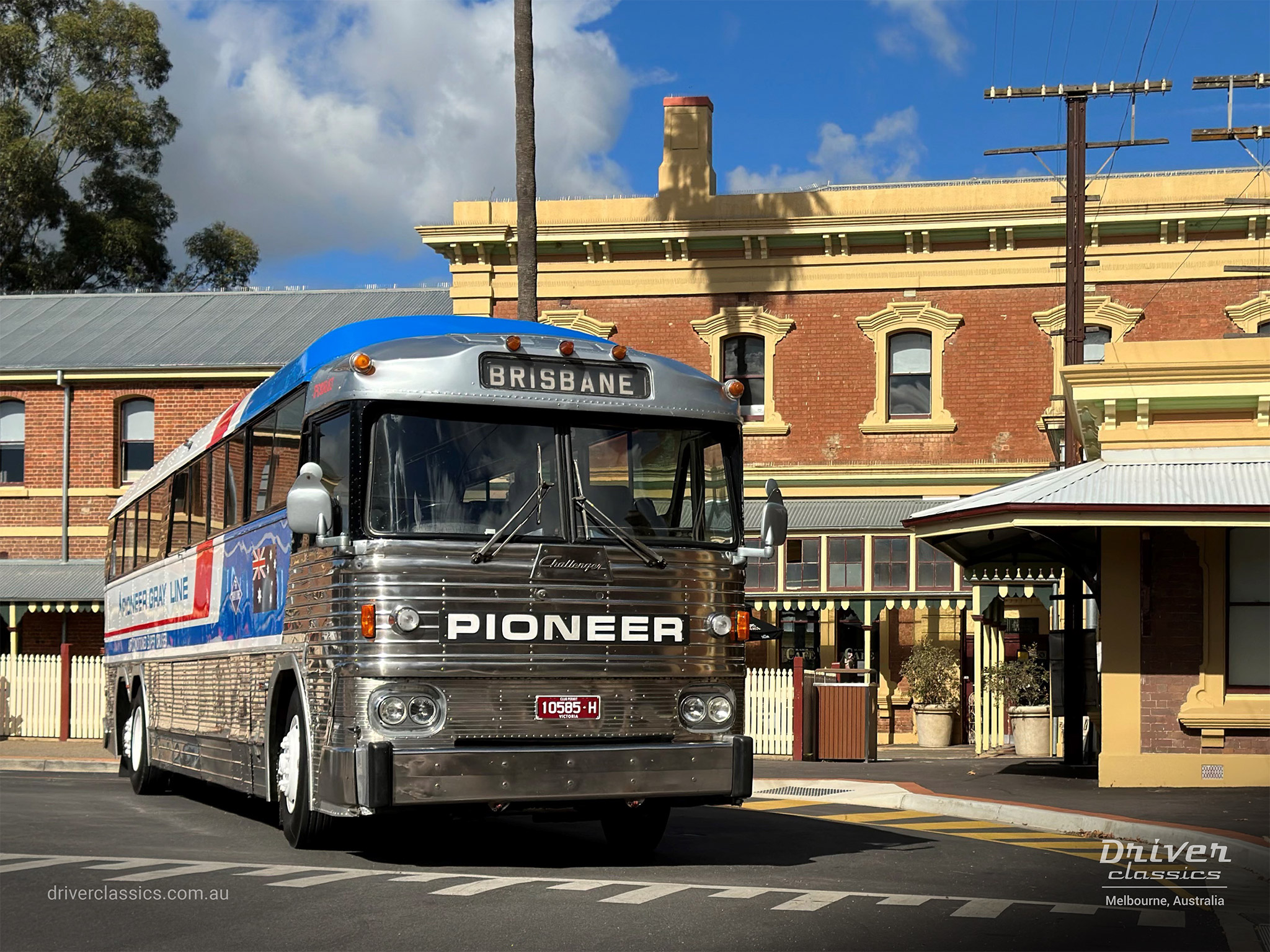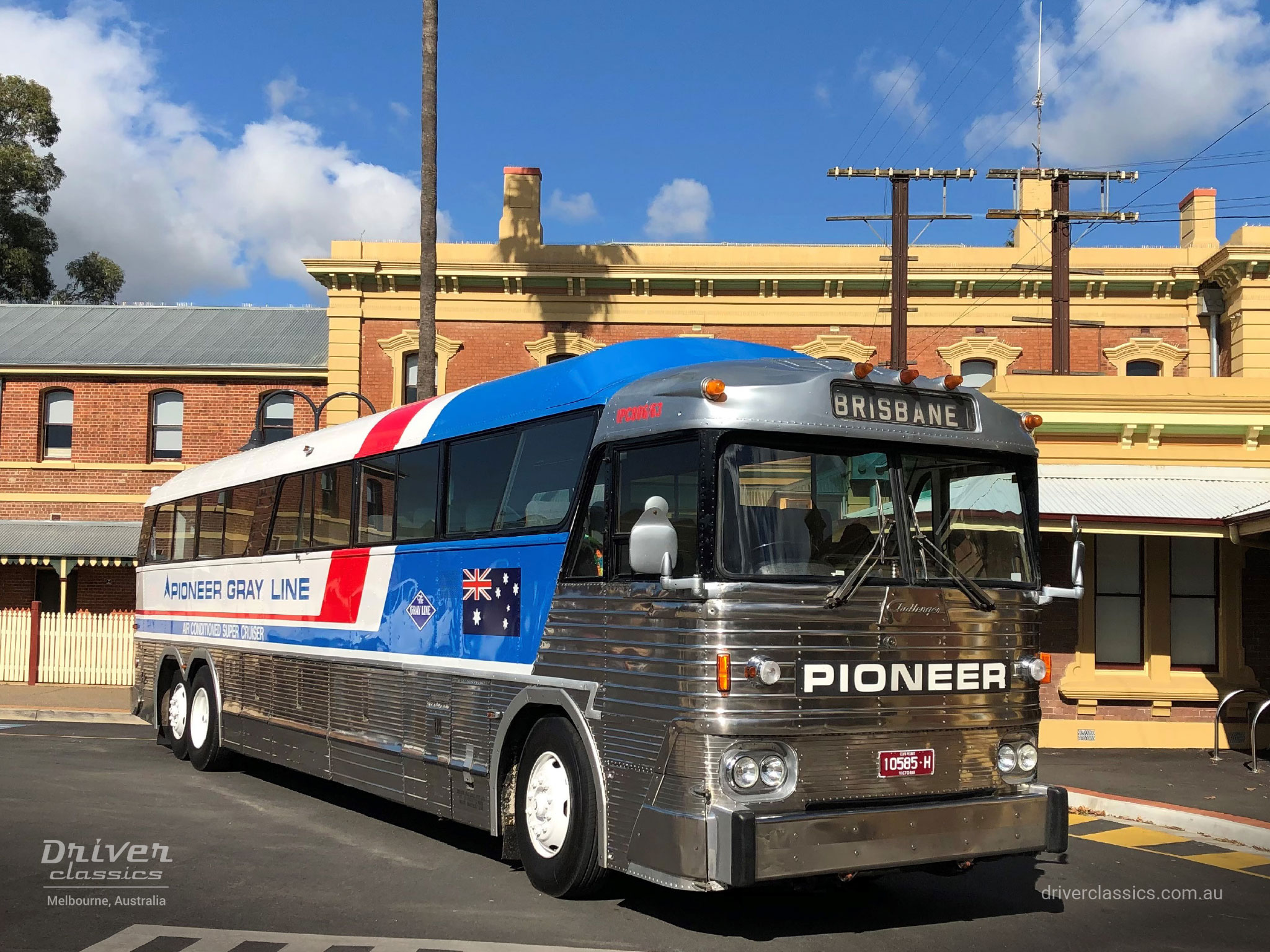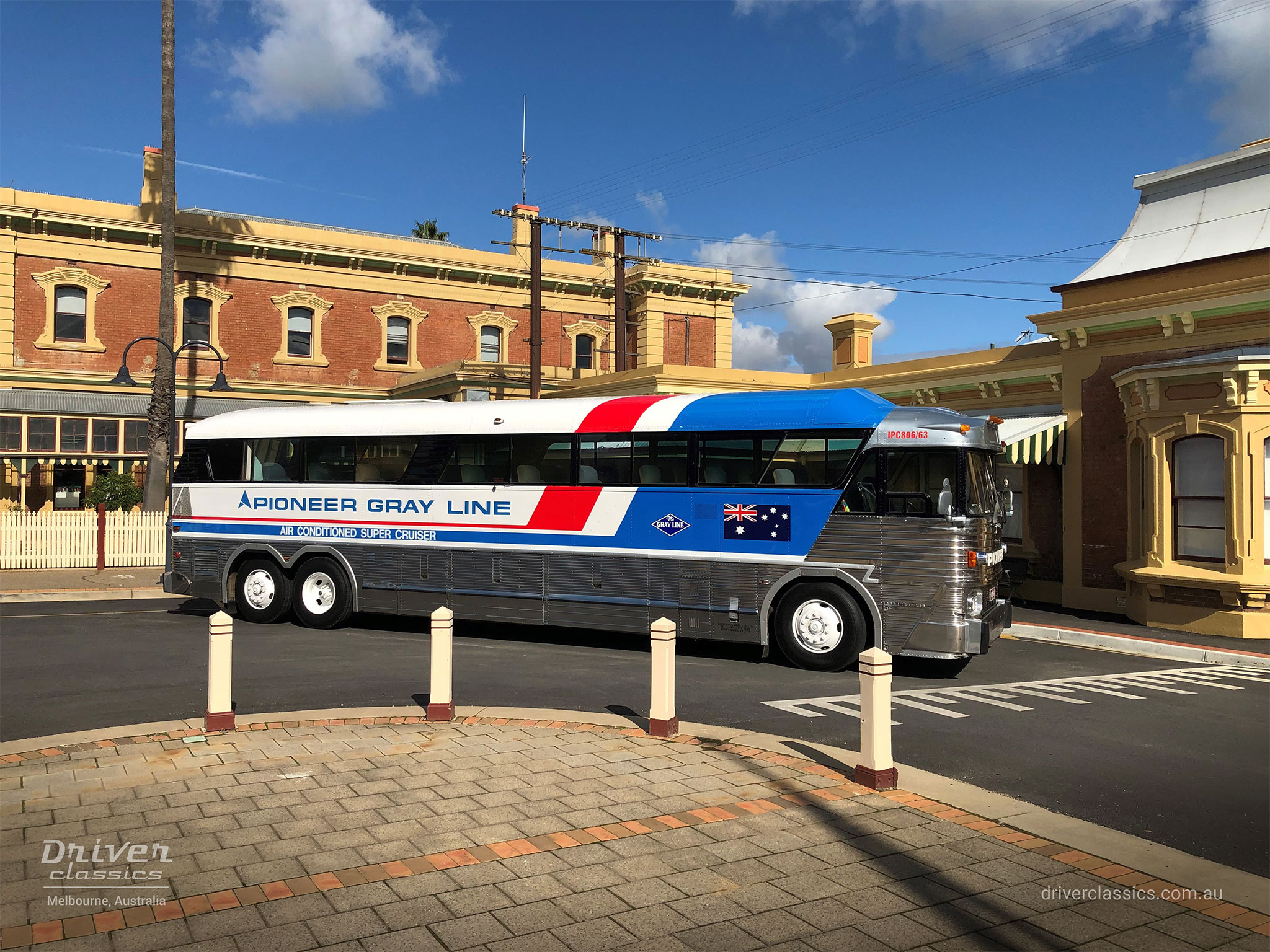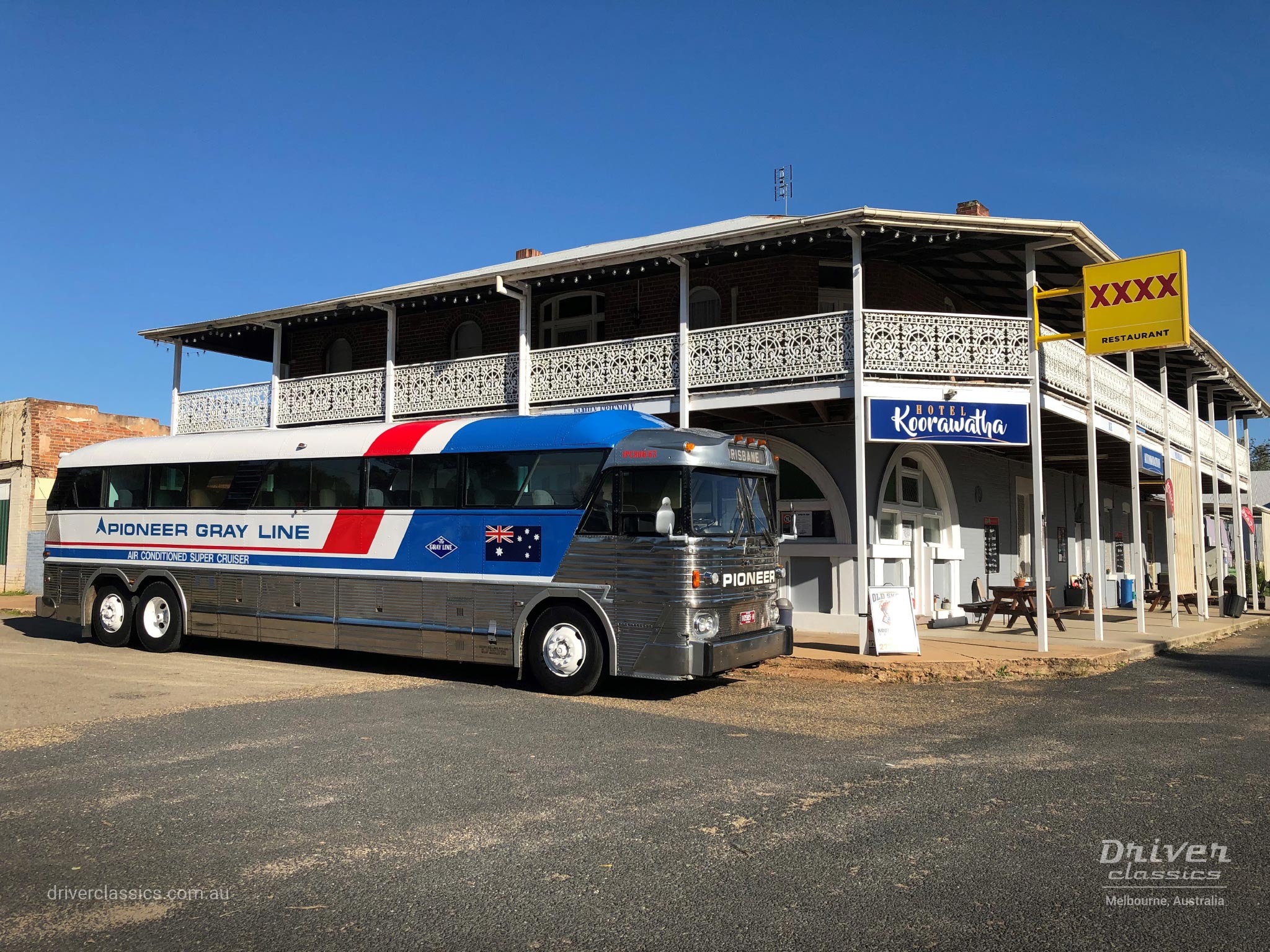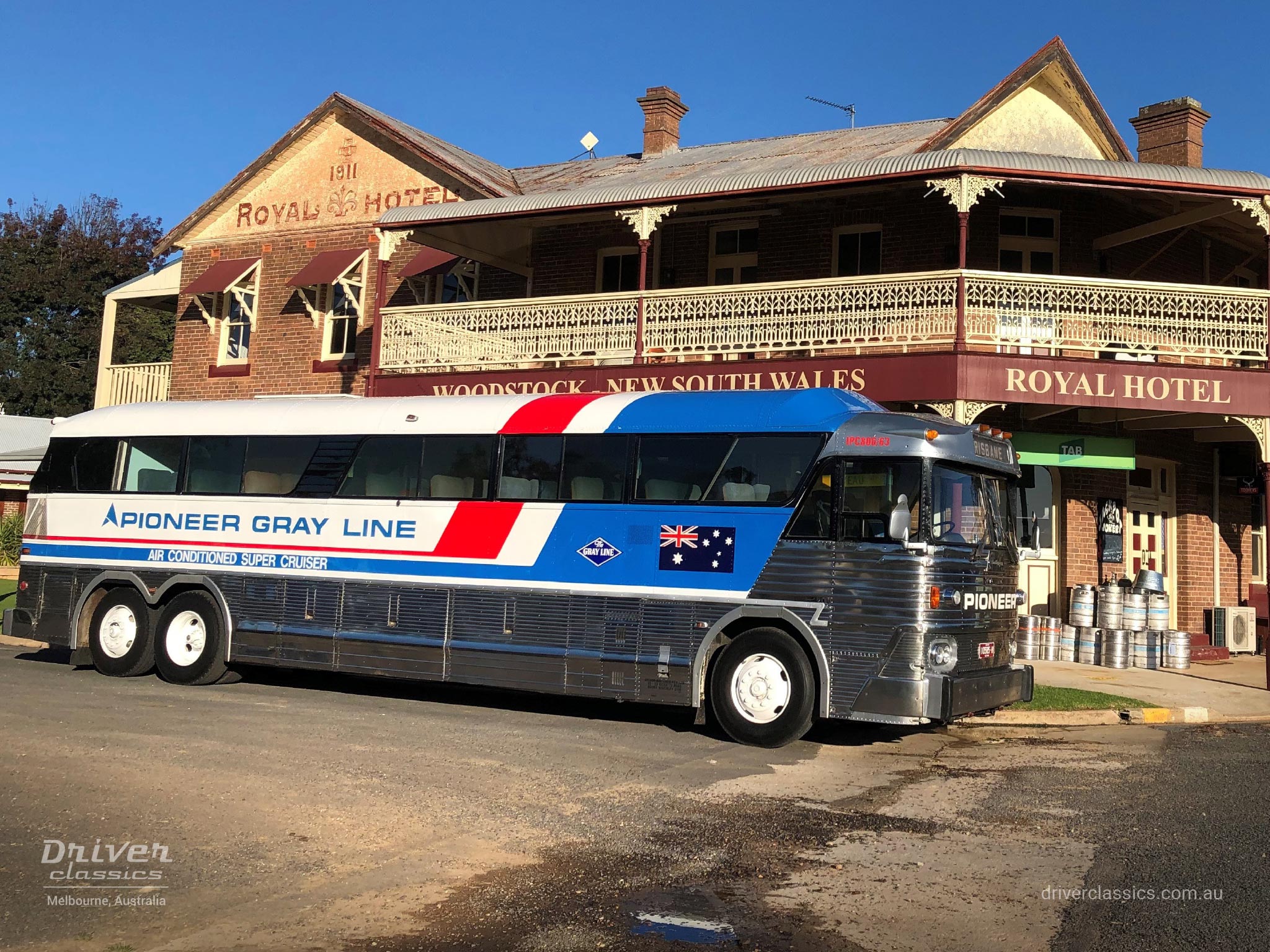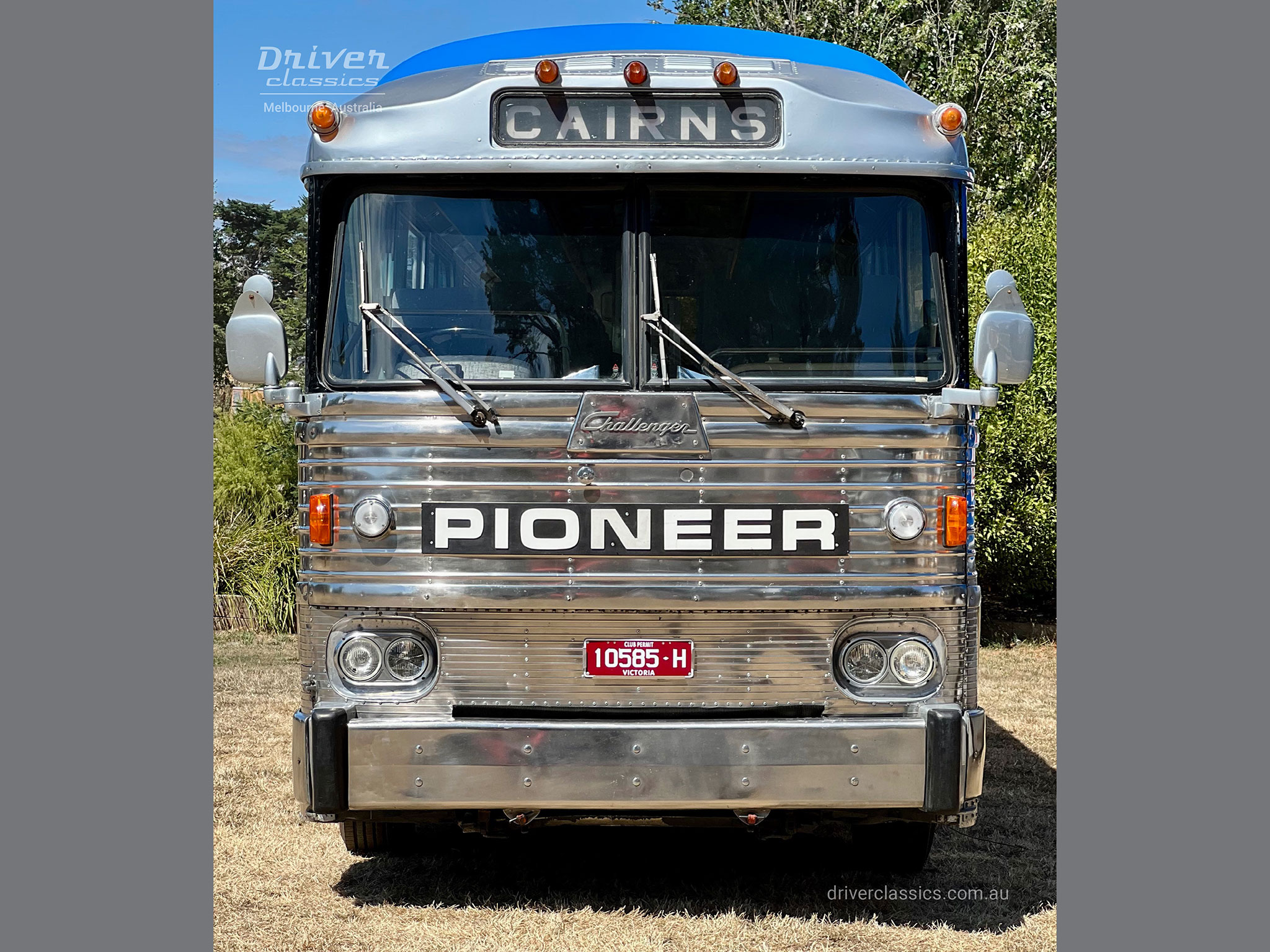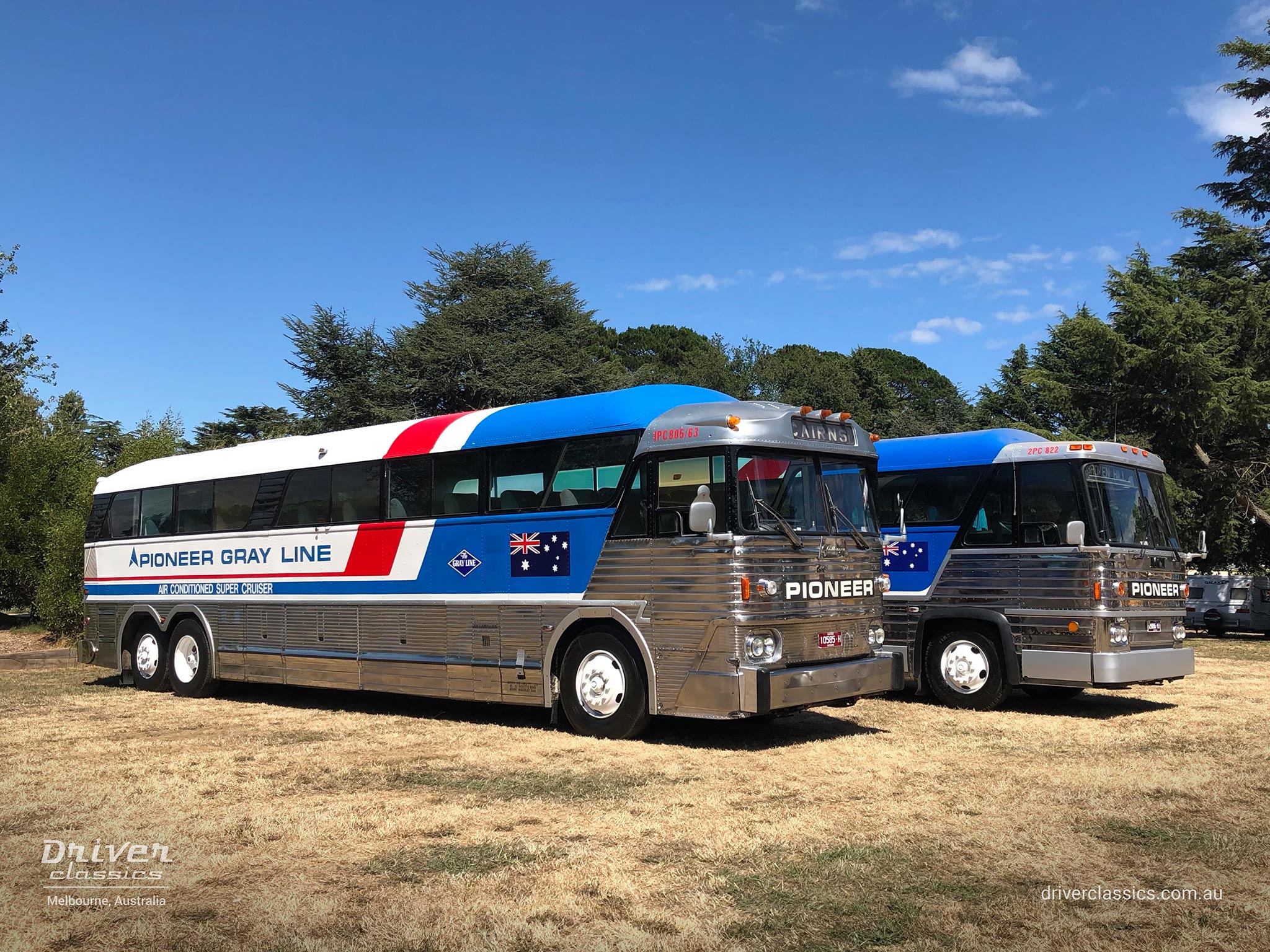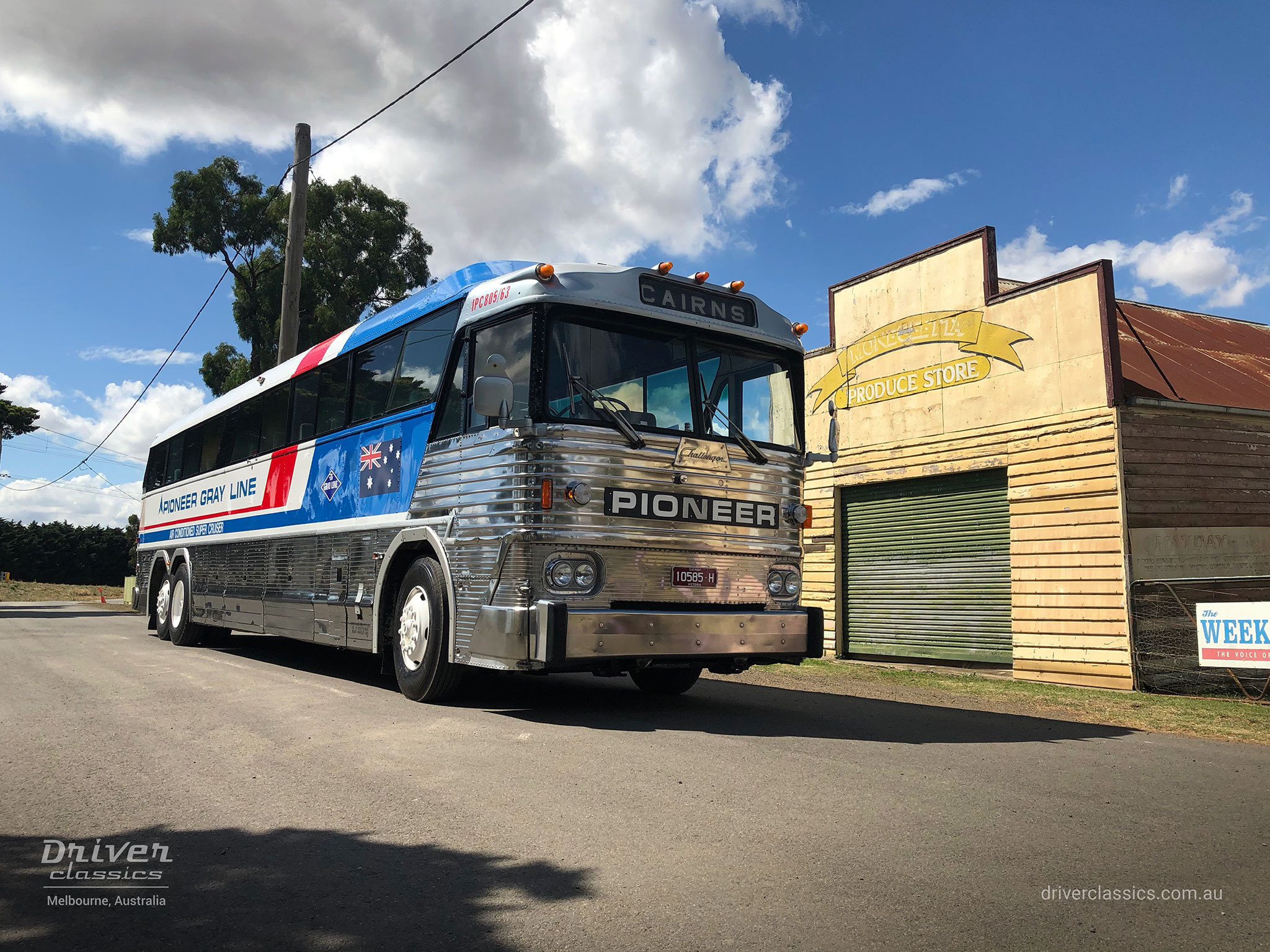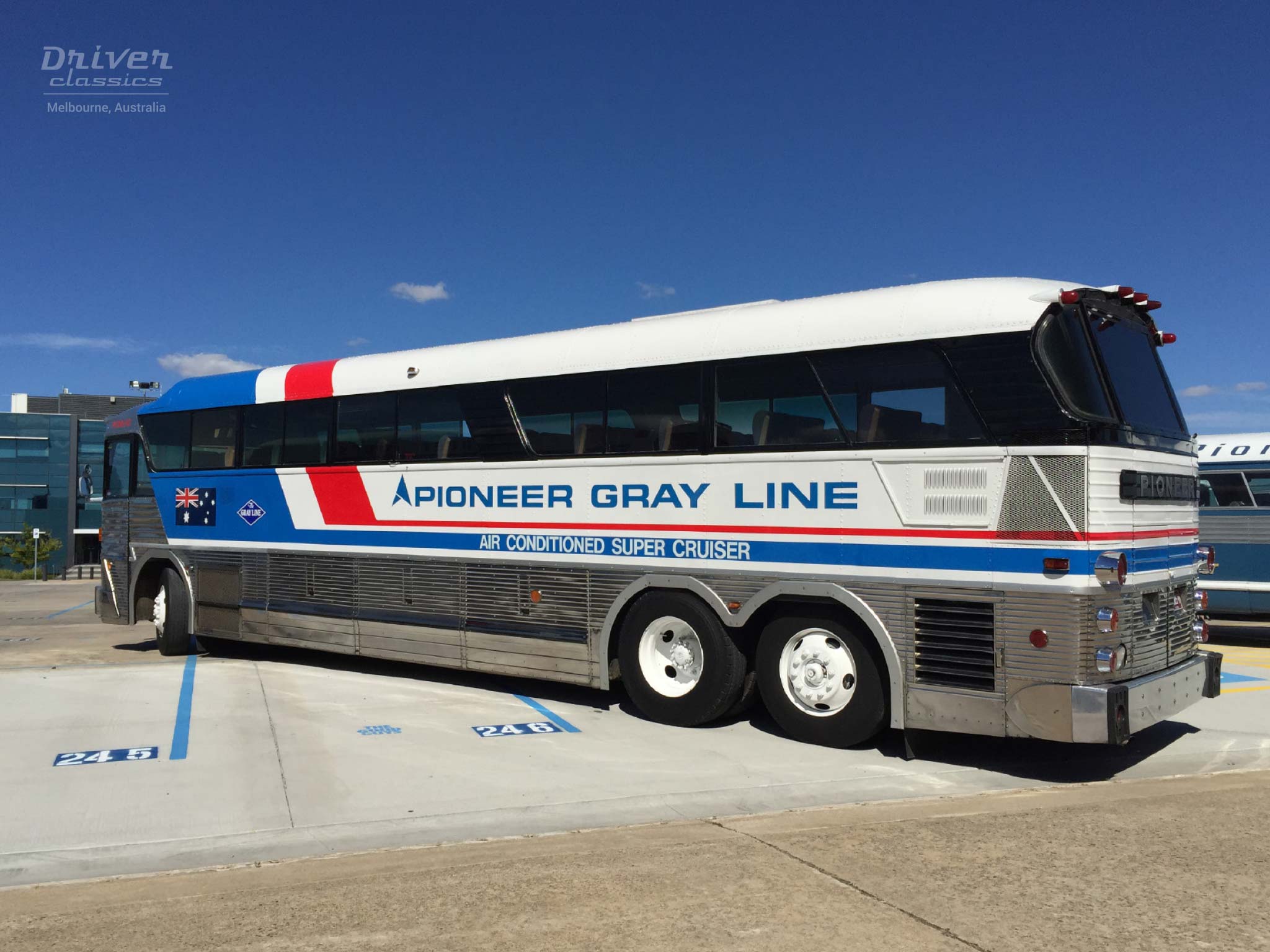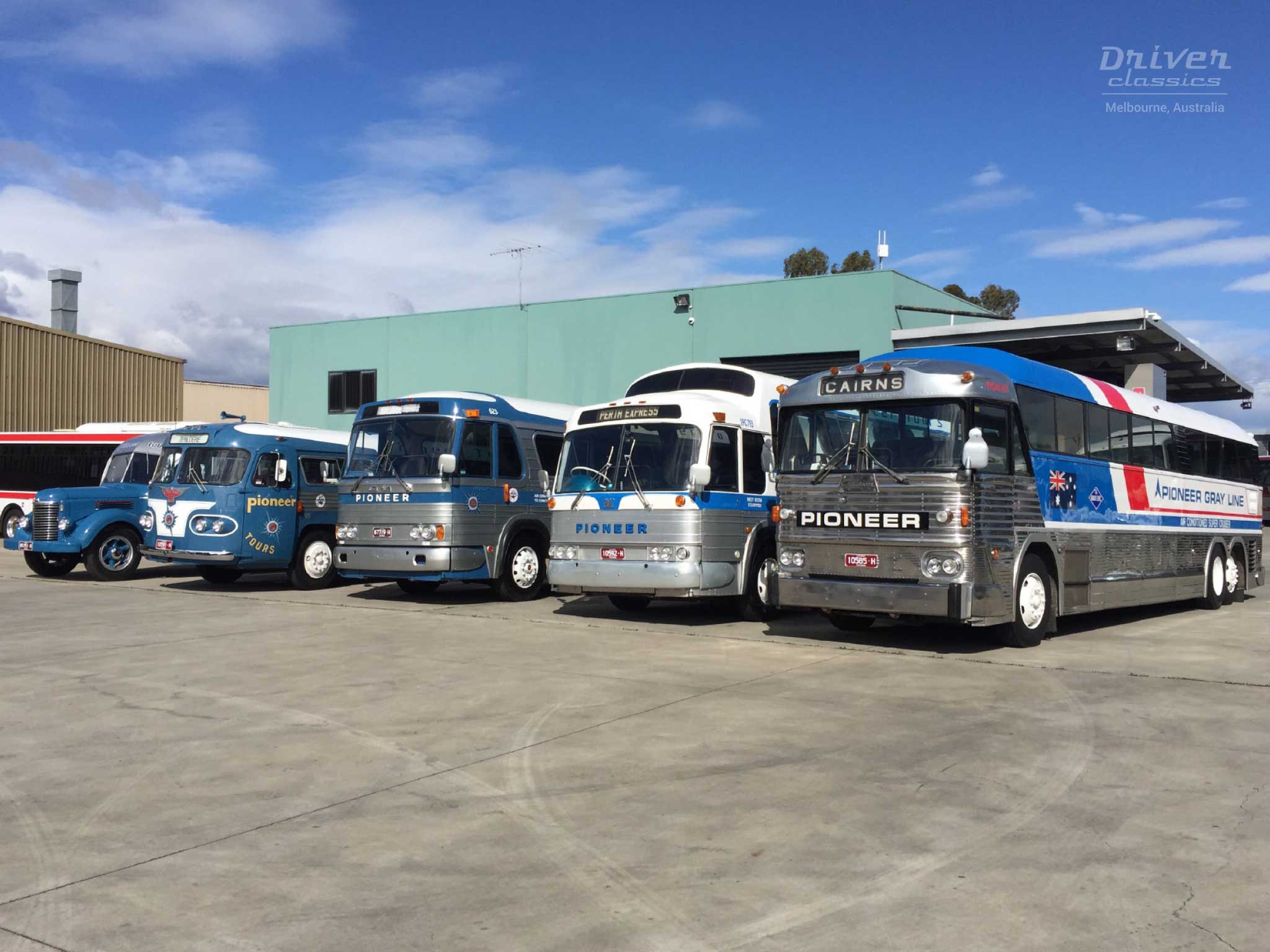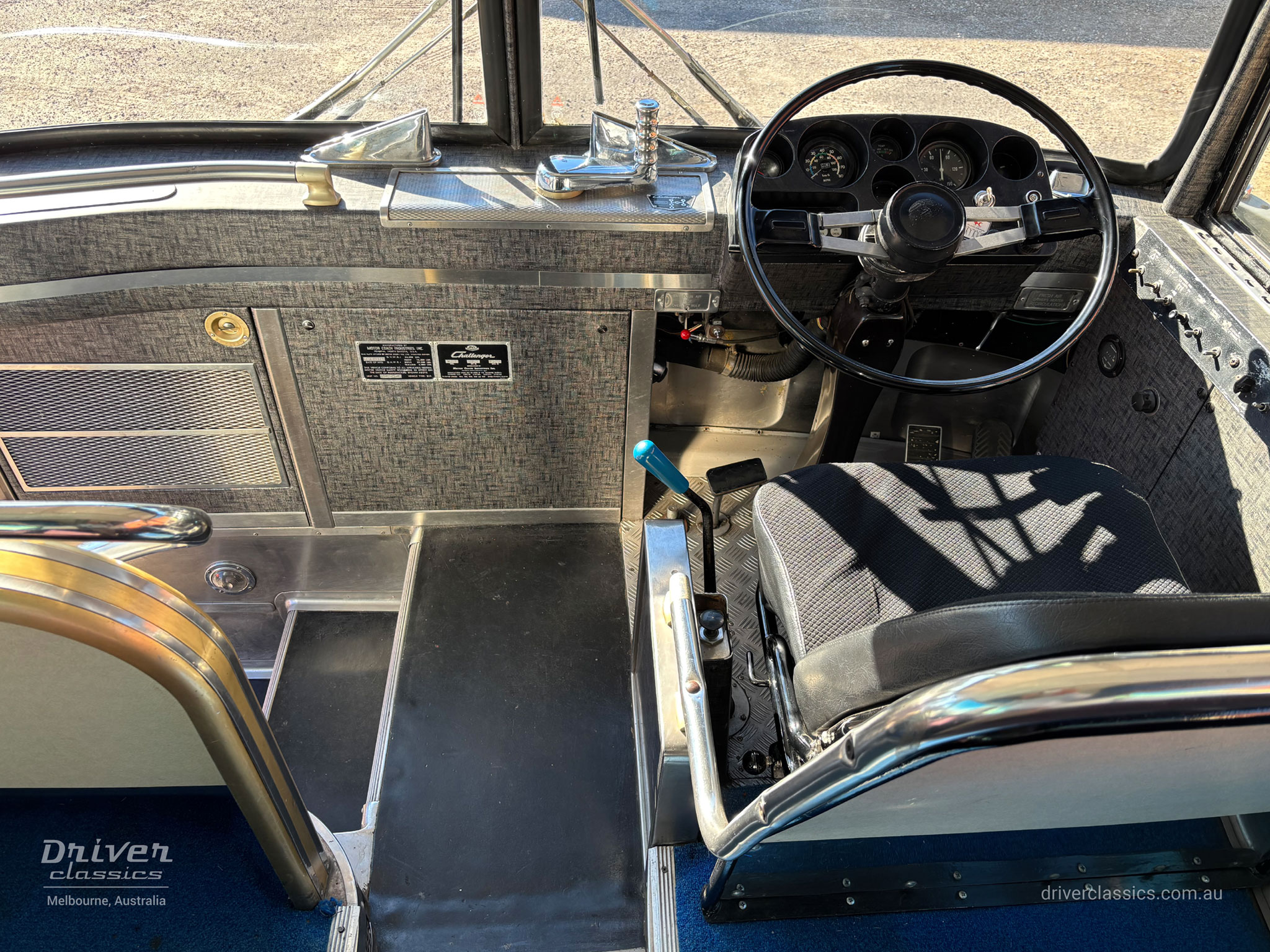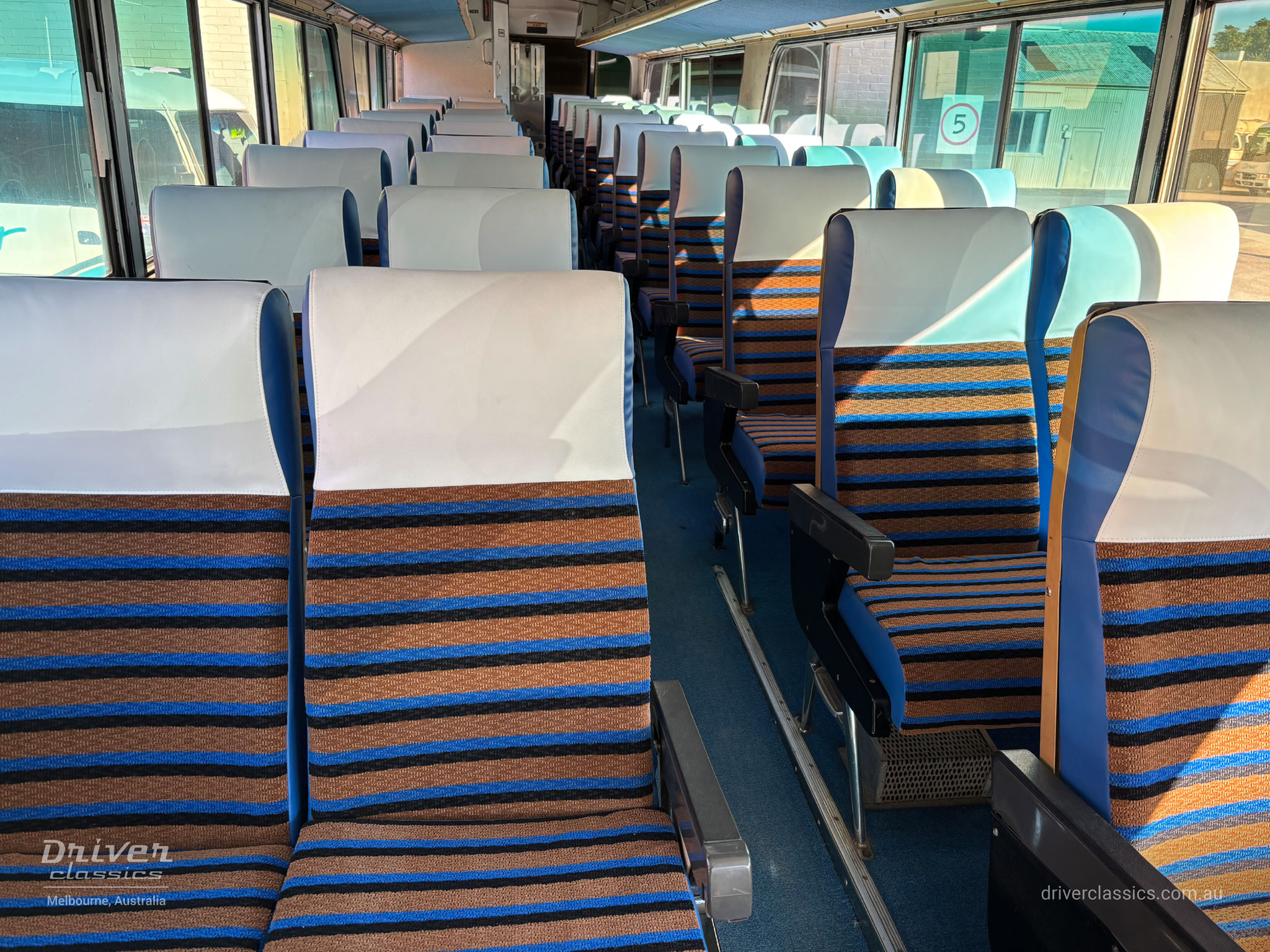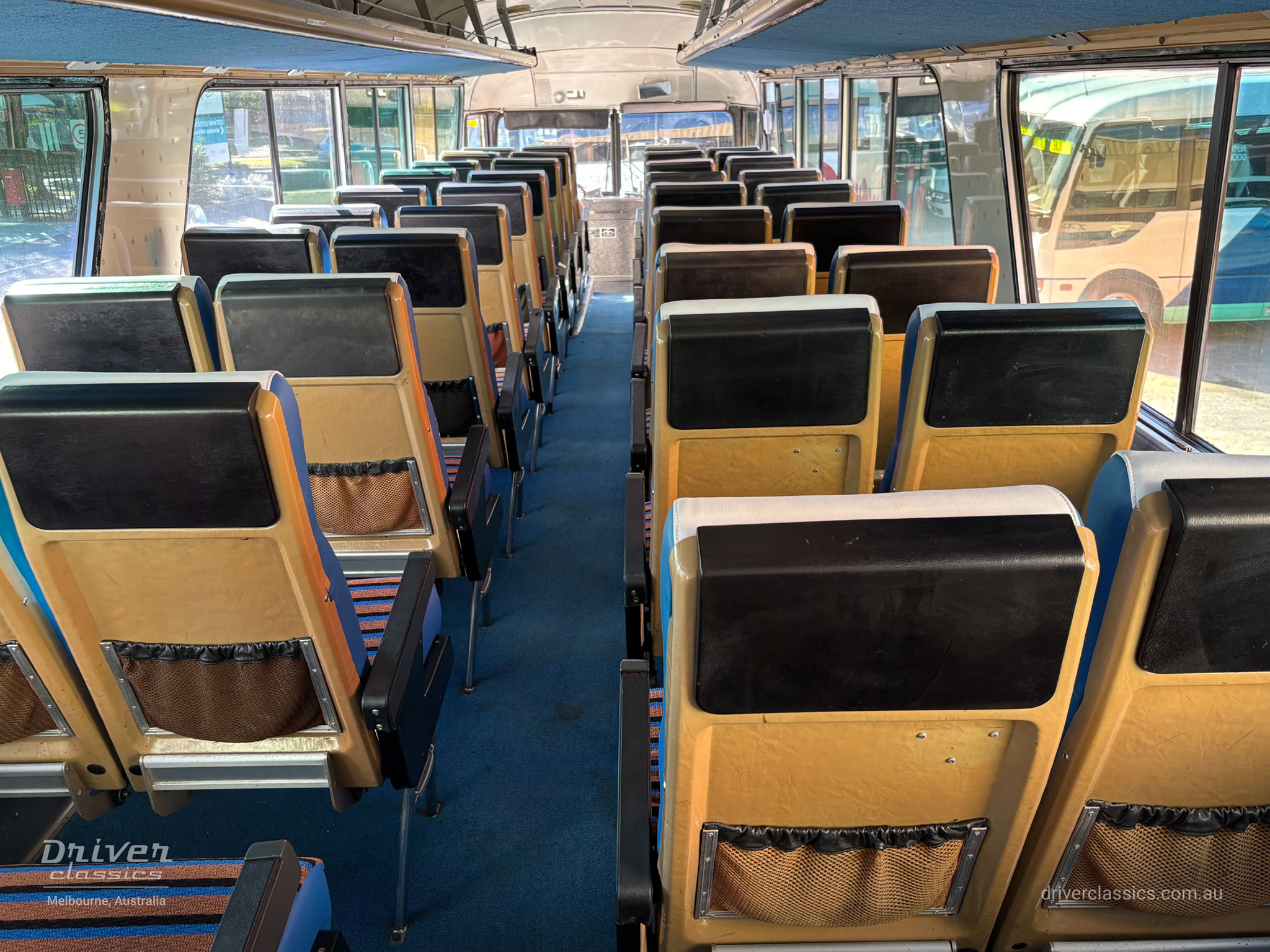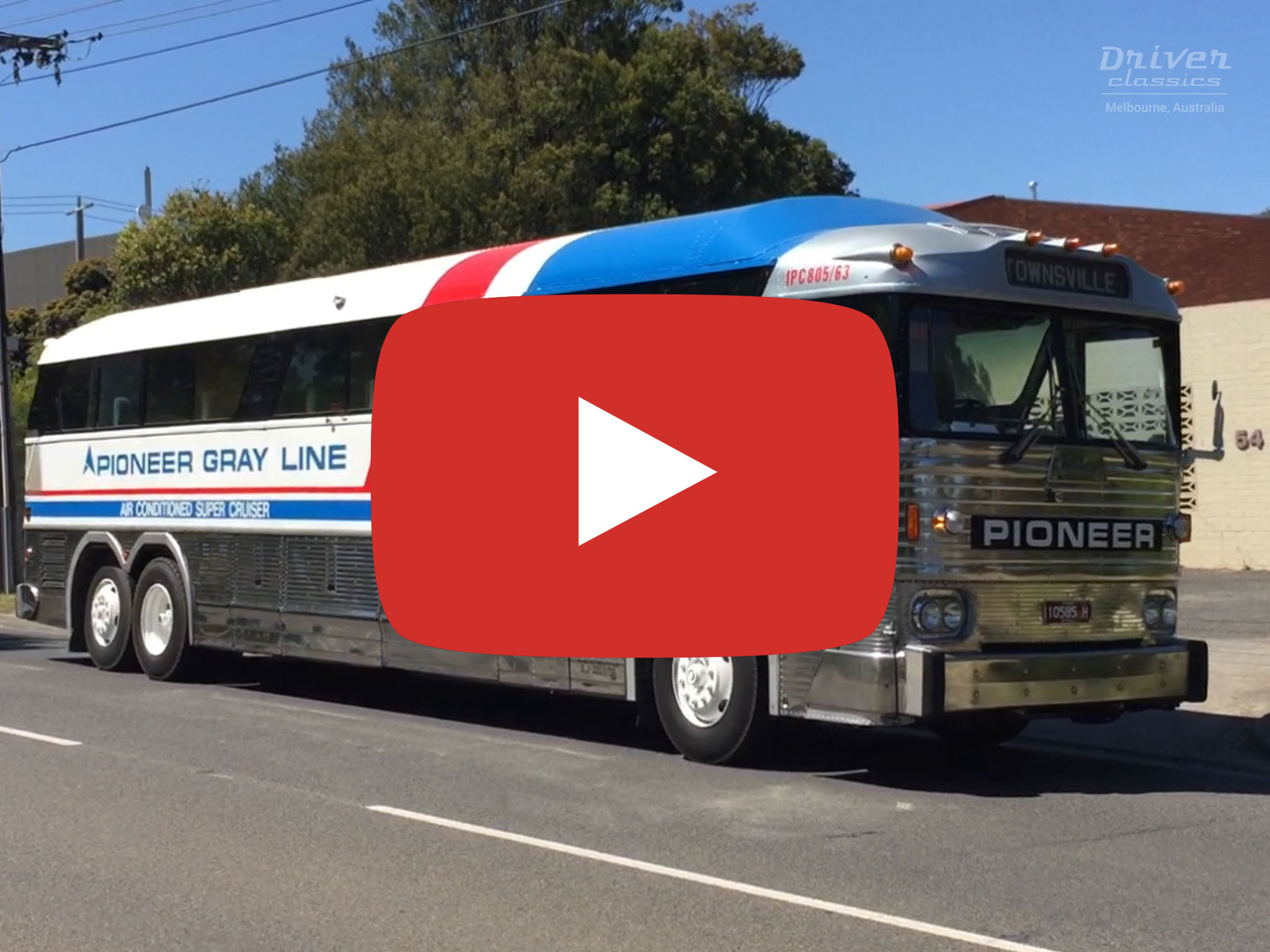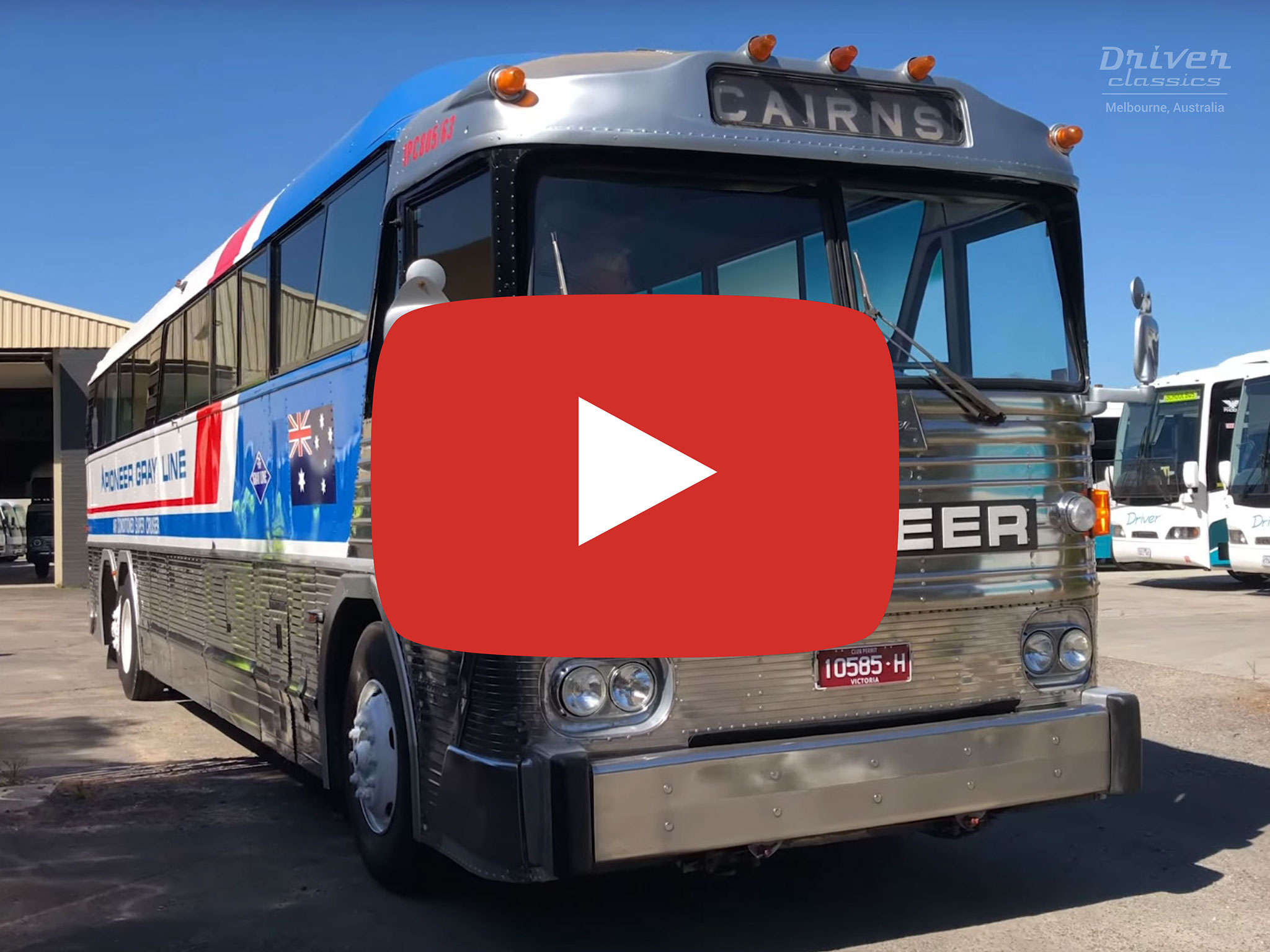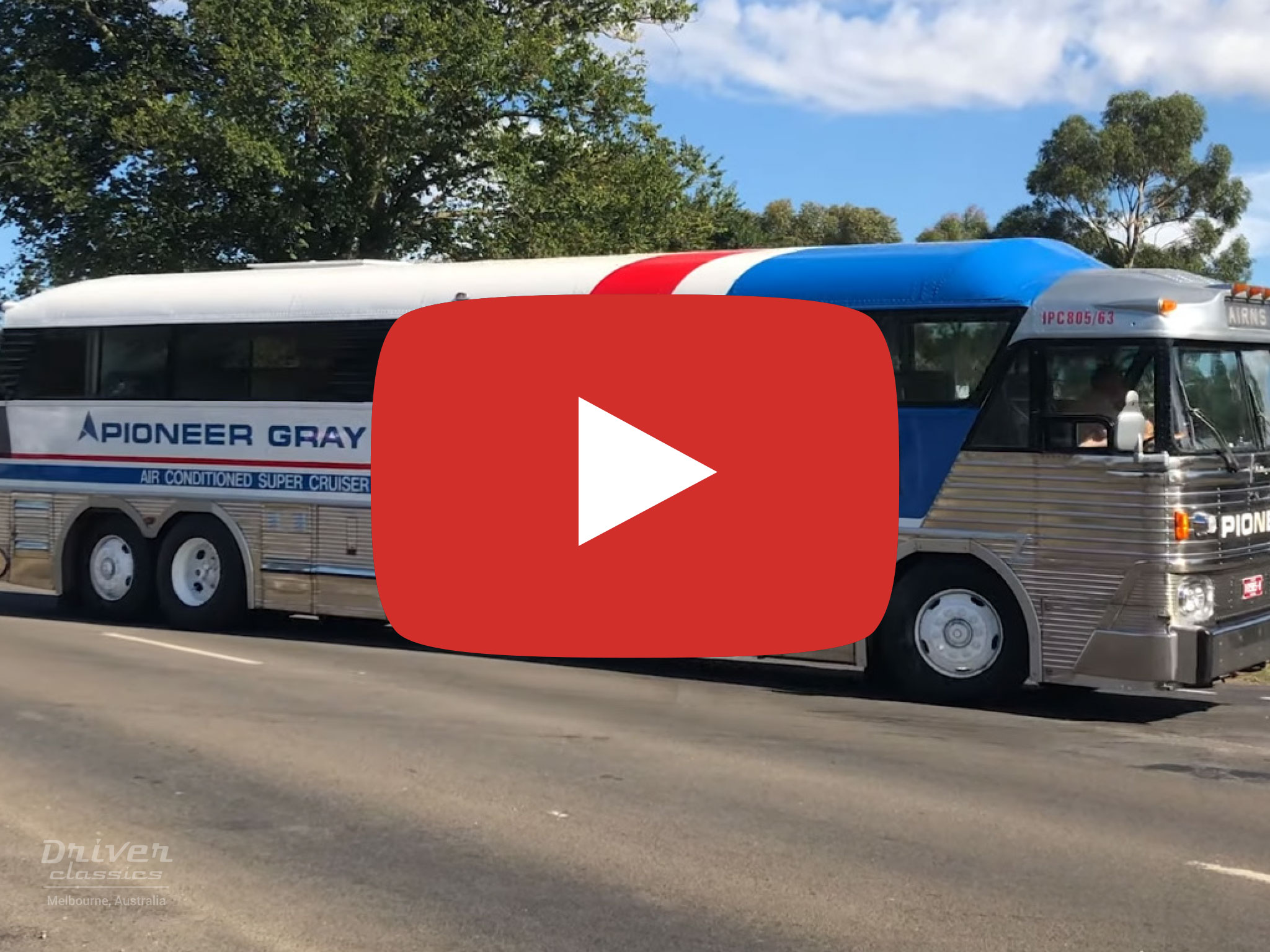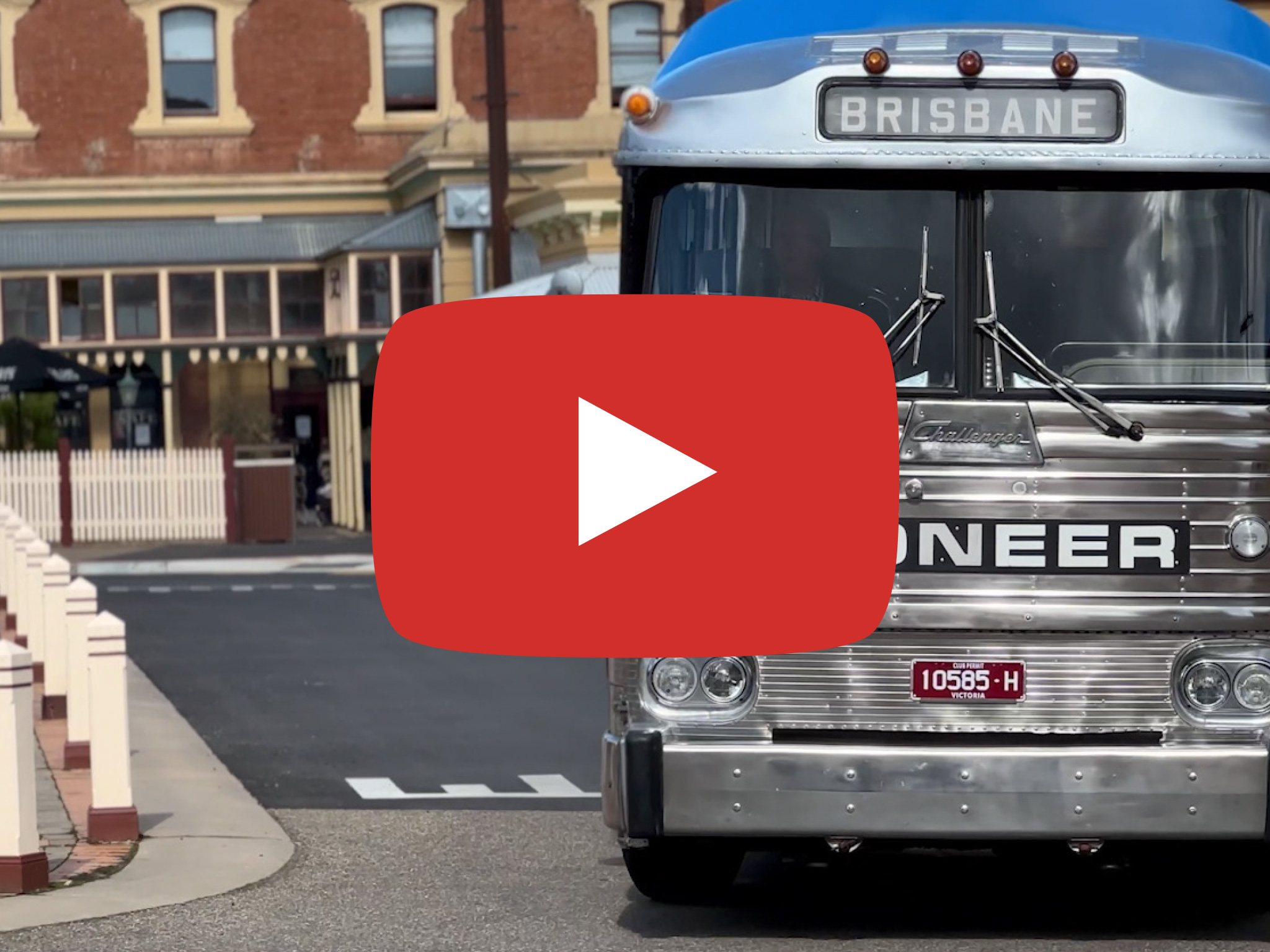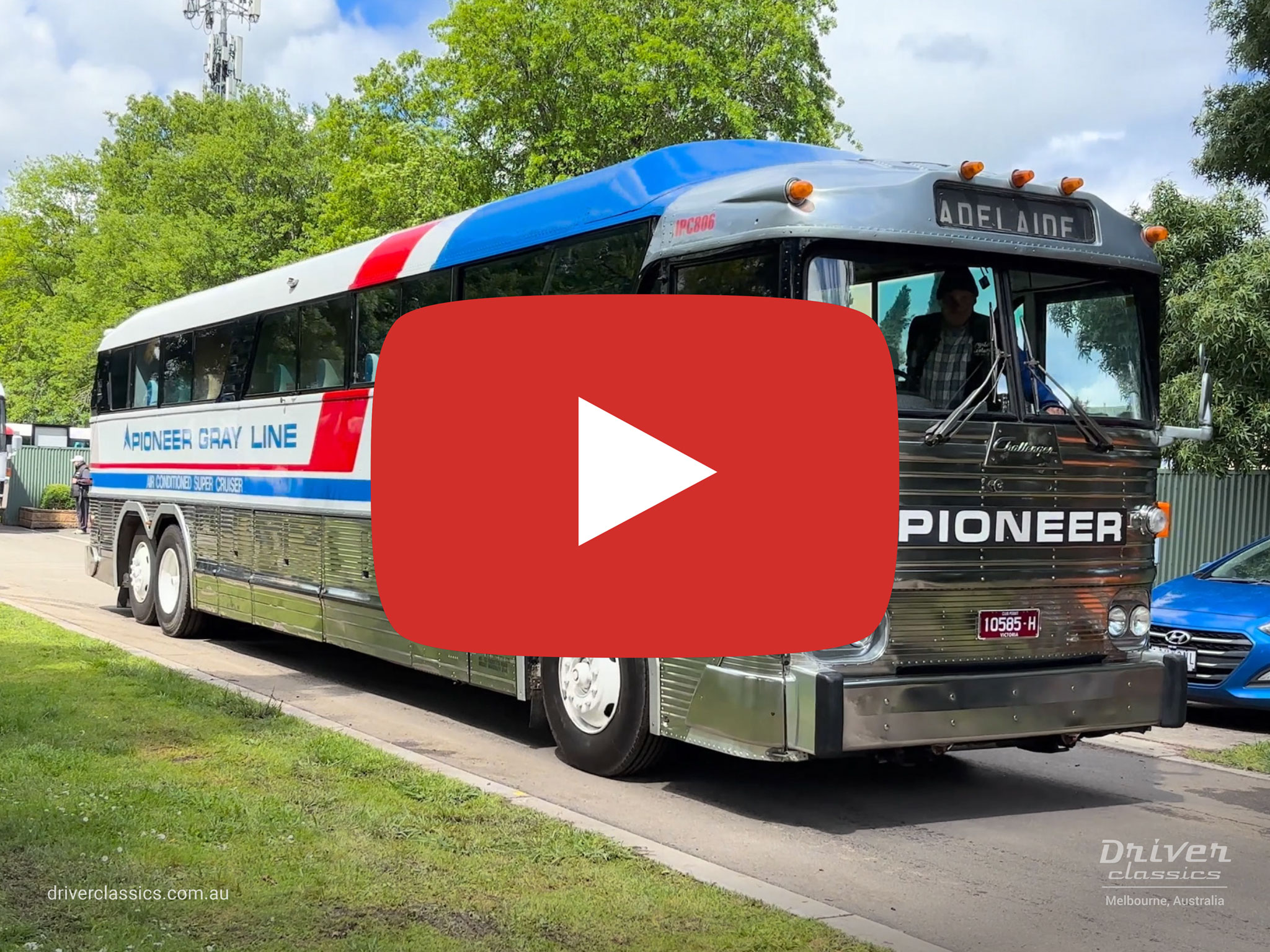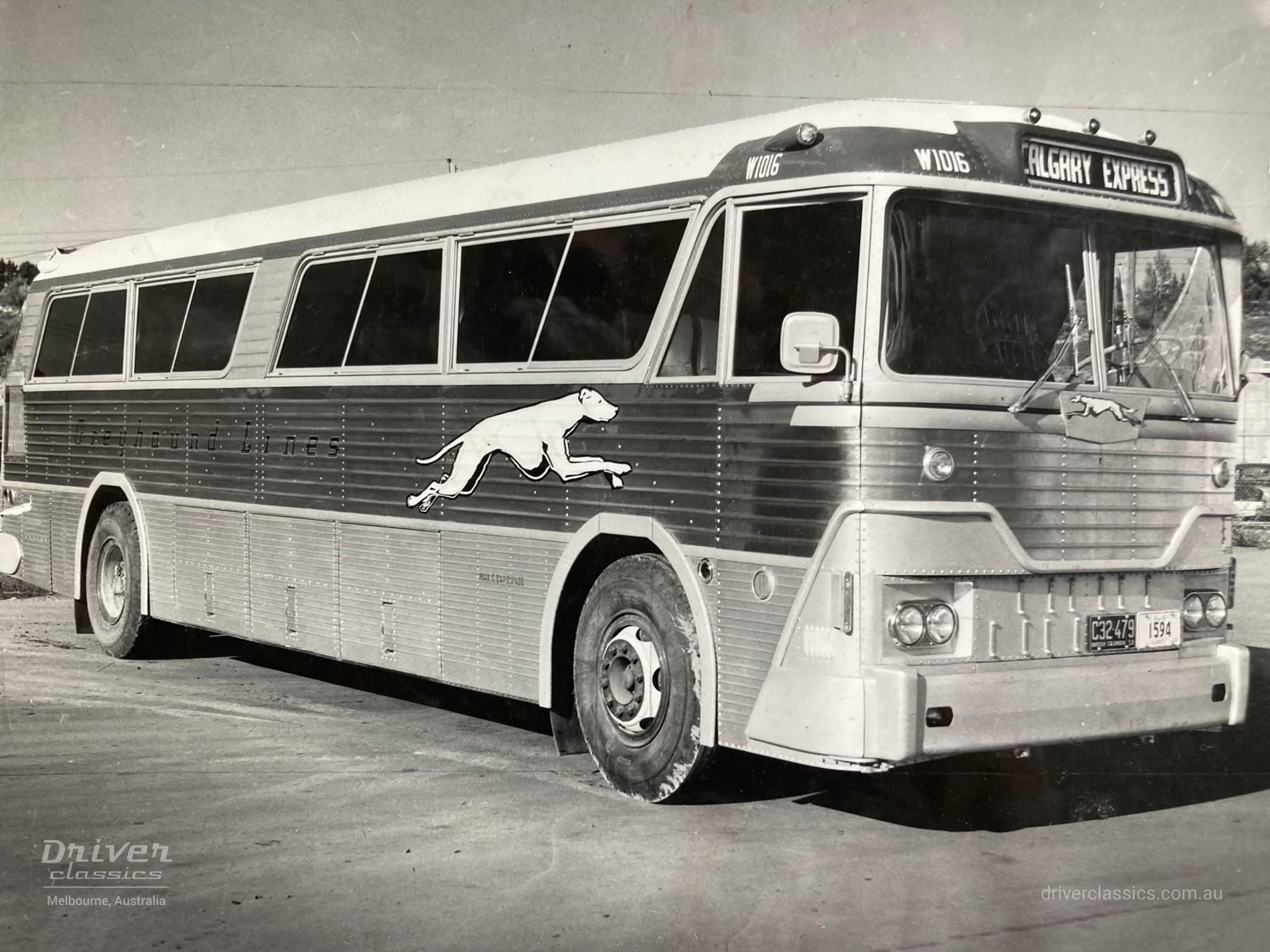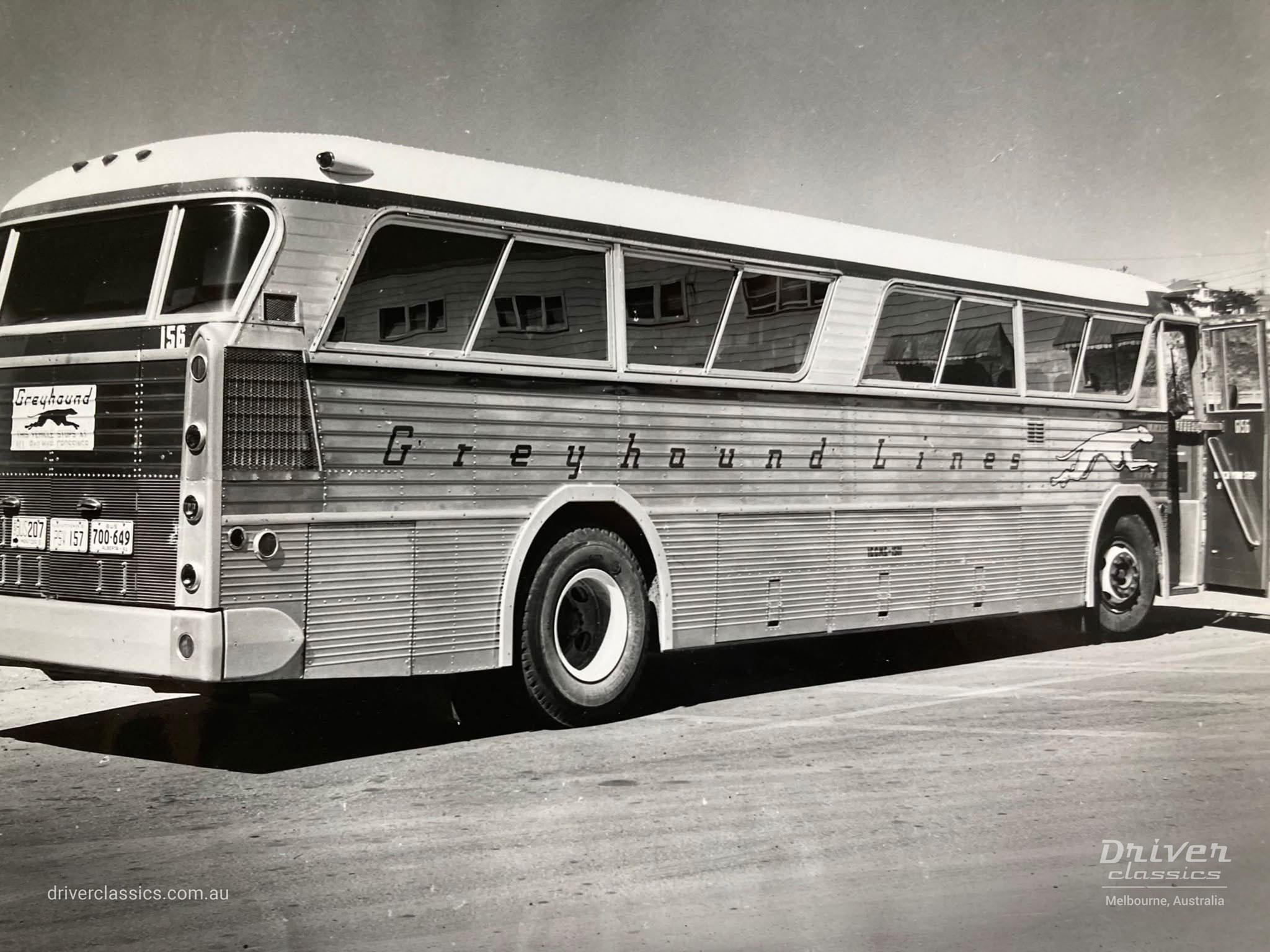1972 MCI MC-7 Challenger (Build #9520, Fleet #806)
Australia’s first 40 foot coach - setting a new benchmark for the 1970s
(Click on photos to enlarge) - Images free to share and distribute but please acknowledge driverclassics.com.au
About This MCI MC-7

Ansett Pioneer sold fleet #1PC806* MC-7 to Macquarie Towns Bus Service in 1985 and sometime later it passed to Eastside Coaches, Sydney NSW. Driver Classics acquired MC7 #1PC806 from Eastside Coaches in 1994 for restoration. A second 1972 MCI MC7 (Build #9516, Pioneer fleet #802) ex Glenhenry Tours was purchased from Rob Duke, Gembrook VIC in October 2017 for parts.
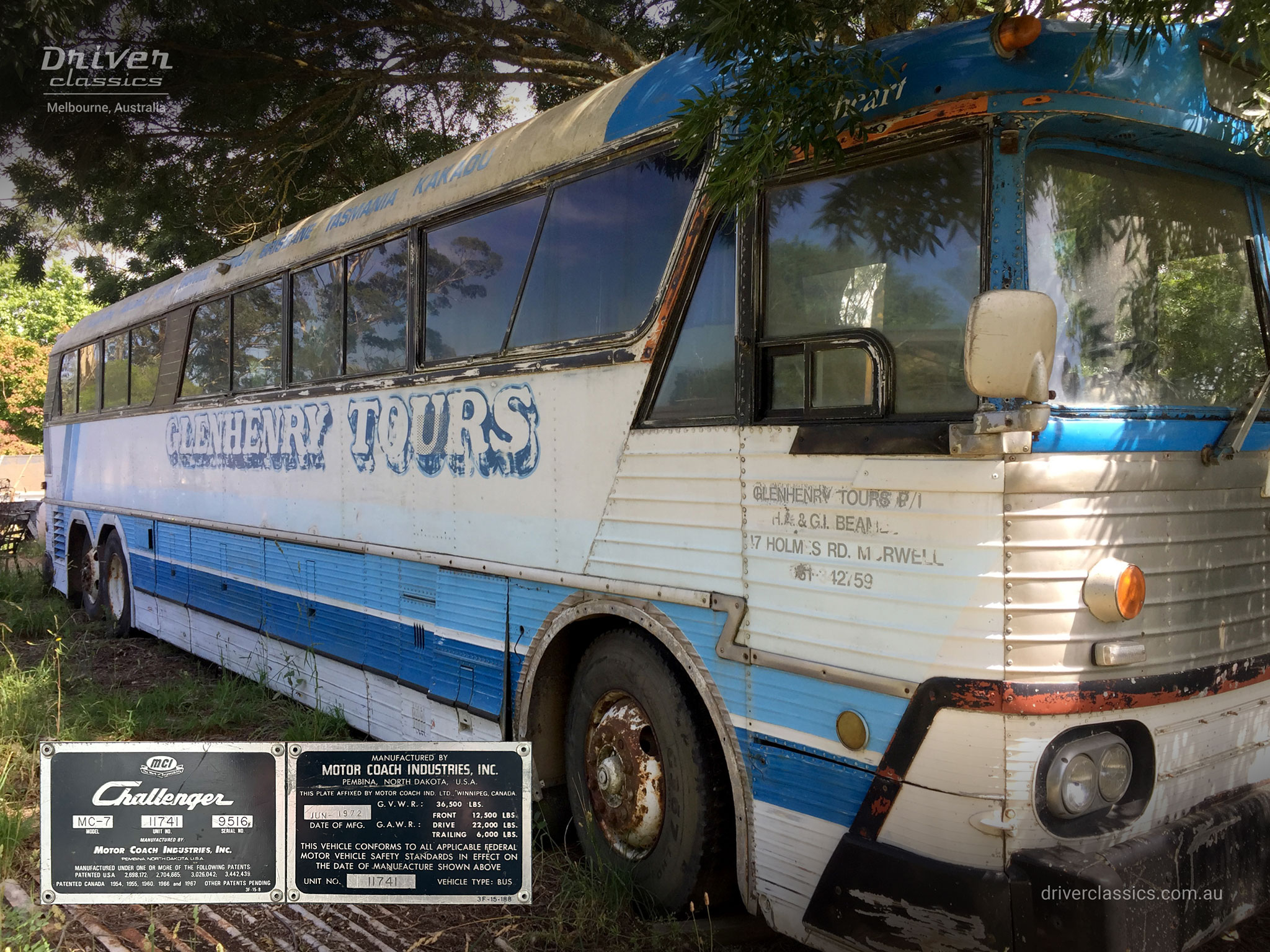
Our MC-7 is powered by a GM Detroit Diesel V8 2 stroke engine, 568ci model 8V71, rear mounted in-line, with a 4 speed Spicer constant mesh transmission.
*Since 1994, Driver Classics’ 1972 MCI MC7 build #9520 was thought to be fleet #805. When Canadian MCI authority Brian Grams was researching actual MCI production lists in 2022, he discovered that the build numbers and corresponding fleet numbers used in a locally produced hand written fleet list compiled in the 1980s, were incorrect. So MCI MC7 #9520 is in fact fleet #806 and similarly, our MC7 parts bus build #9516 is in fact fleet #802.
The Story
Harry Zoltok founded Fort Garry Motor Body and Paint Works in Winnipeg, Manitoba, Canada in 1932. In 1941 the name was changed to MCI (Motor Coach Industries) and in 1948, Western Canadian Greyhound, a subsidiary of Greyhound Corporation USA bought shares in MCI leading to full ownership by Greyhound in 1958. Today and for many decades, MCI has been the largest selling coach builder in North America and MCI’s current owner, New Flyer, is the largest selling transit bus builder in North America.
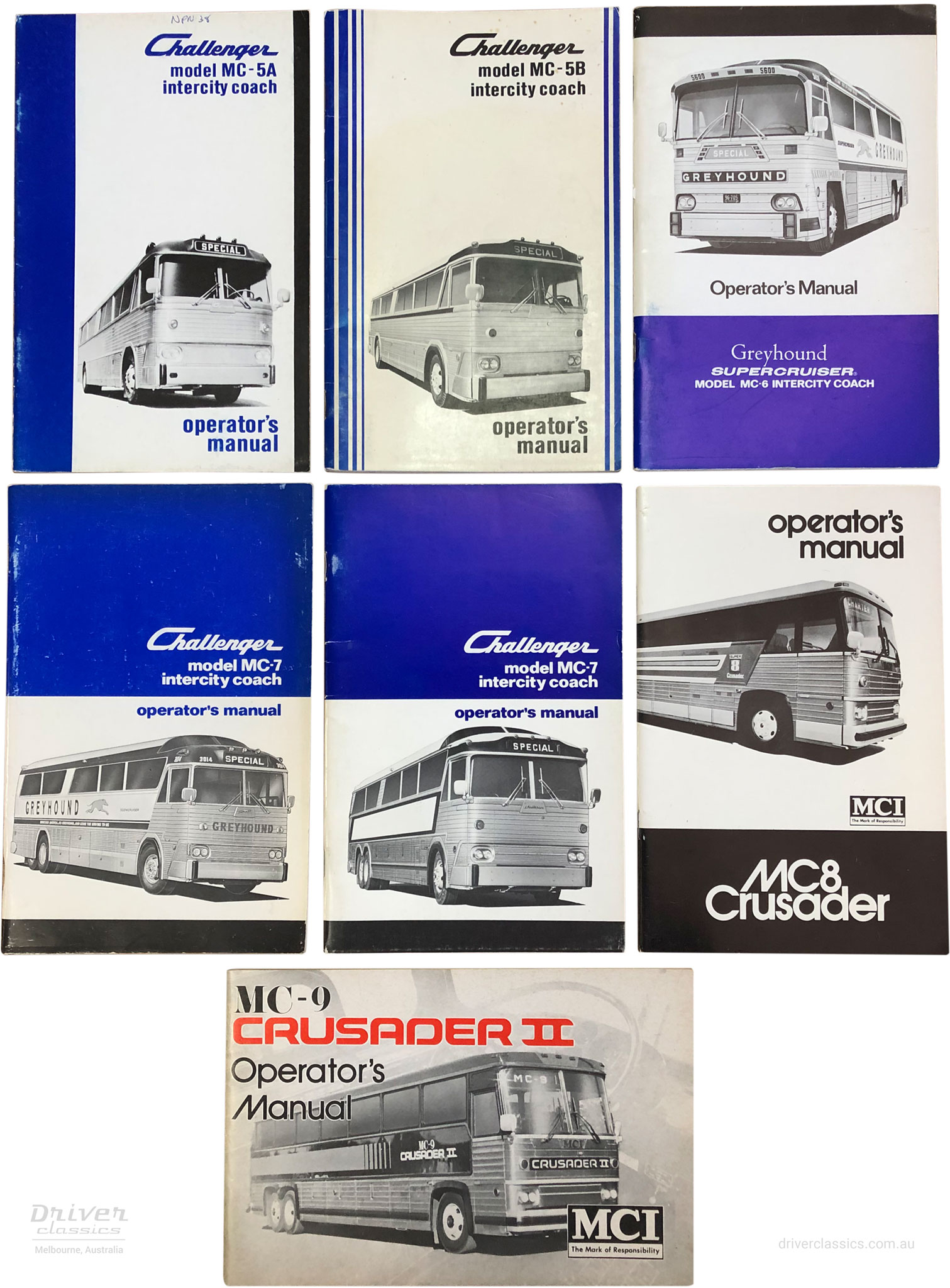
MCI’s ‘MC’ series of coaches, dates back to 1959 when MCI introduced the MC-1 Challenger, a two axle 35-foot coach with a rear mounted GM 4-71 diesel engine and small rear tail fins. The MC-2 followed in 1960 using a V6 GM Diesel engine, model 6V71 and carry-over rear tail fins. The 1962 MC-3 had a new rear window and taillight design and the tail fins were now gone, while in 1963 the MC-4 was equipped with a larger V8 GM/Detroit Diesel engine, model 8V71.
The 1963 MC-5 was the first MCI to be exported in quantity to Greyhound in the USA, and continued with updates as an MC-5A, MC-5B and MC-5C through until 1980. In 1967, MCI built 2 prototype X6s that led to 100 production MC-6s in 1969 and 1970 exclusively for Greyhound USA (85 units) and Greyhound Canada (15 units). The MC-6 was a 102 inch ‘wide body’ 3 axle, 40-foot coach powered by a V12 Detroit Diesel engine, model 12V71.

The 1968 MC-7 Challenger was the first 3 axle 40-foot, 96-inch-wide coach made by MCI, predating the wide-body MC-6. MCI built 2,550 MC-7s between 1968 and 1973 all powered with the V8 Detroit Diesel engine, model 8V71.

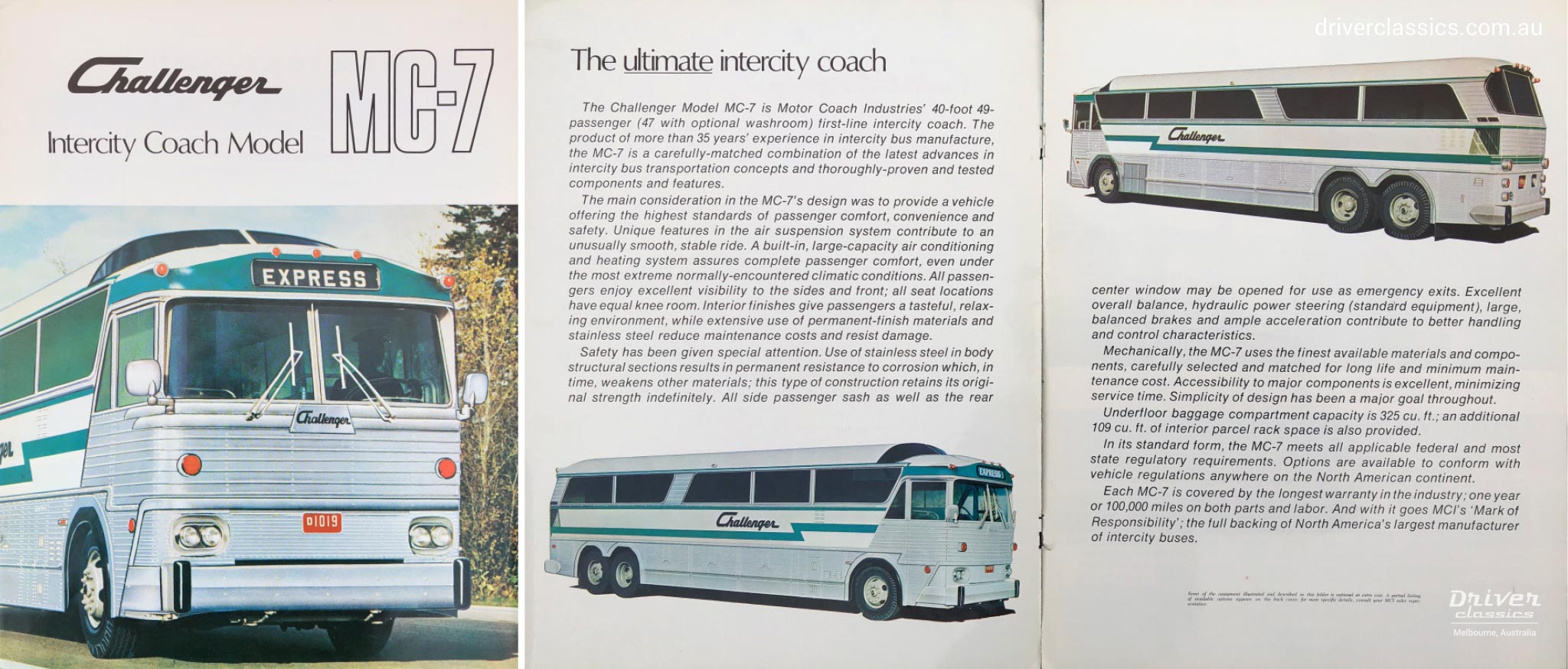
Ansett Pioneer placed an order for an initial batch of 10 MC-7s, when it was denied importing the GM PD-4903, a 40-foot version of the GM PD 4107 into Australia because of non-compliant dimensions. Australian vehicle length laws were, however, able to be increased for the MC-7 and it became the first 40-foot coach to operate in Australia. The MC-7 was later followed by 29 MC-8s and 15 MC-9s.
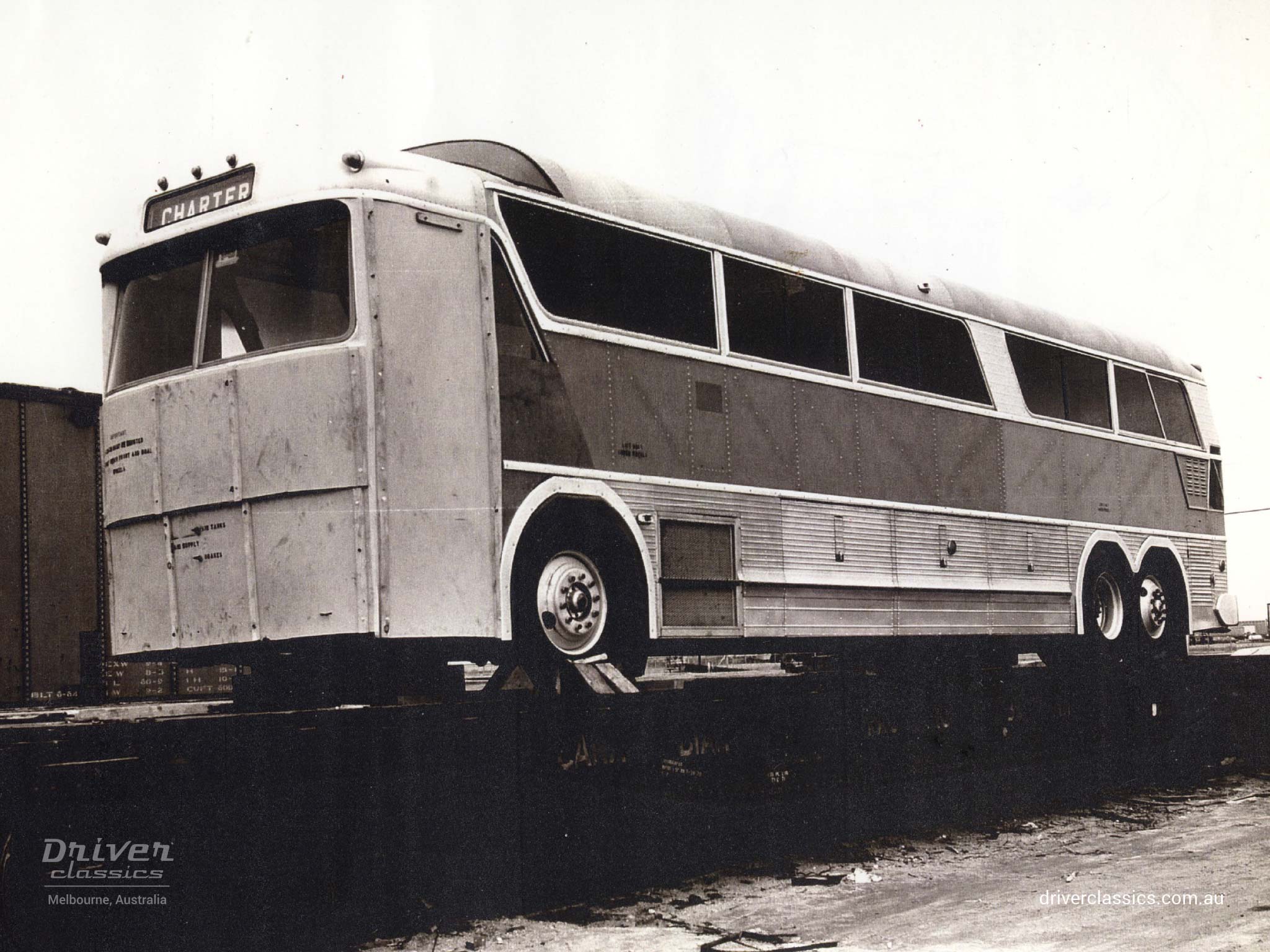
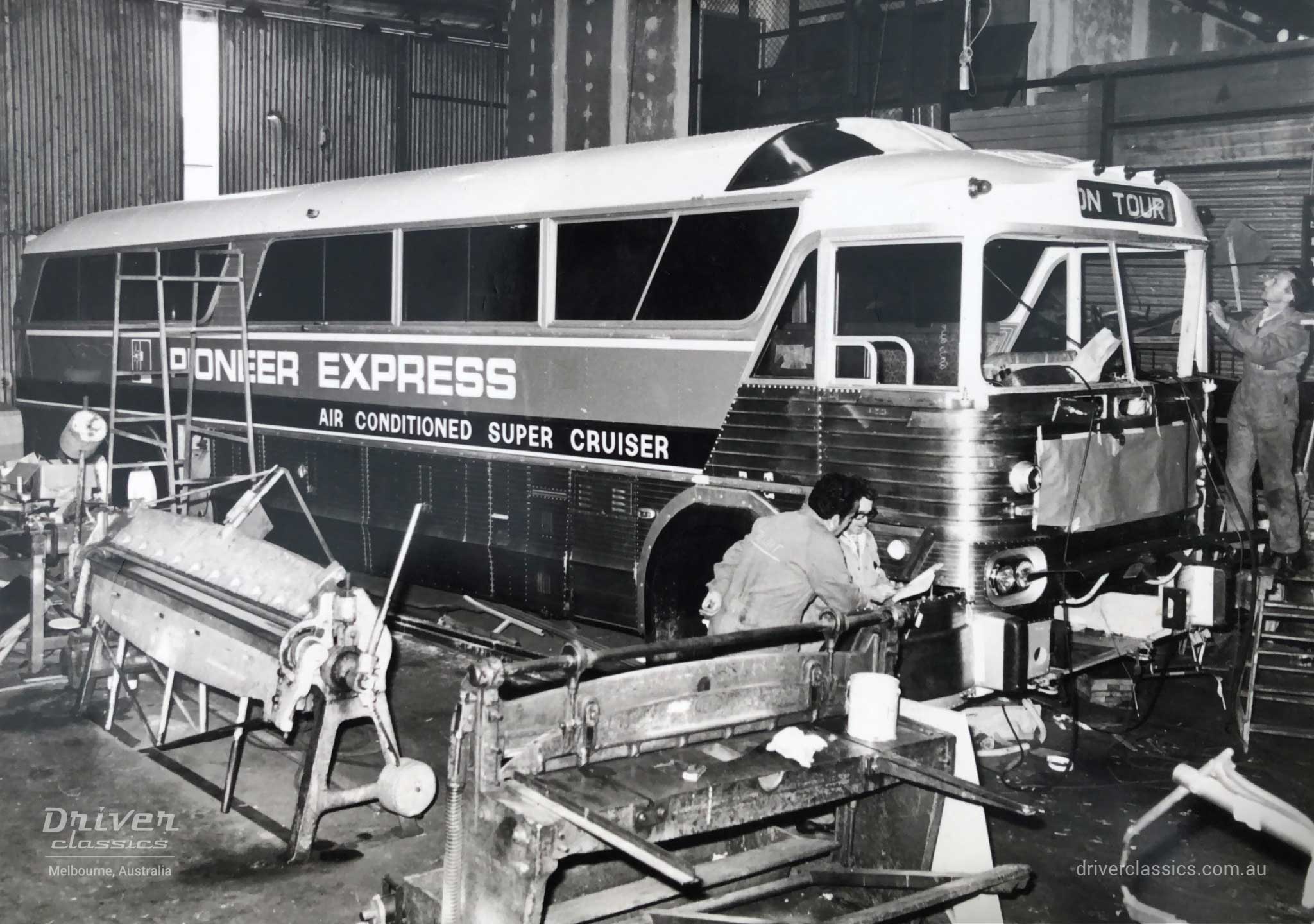
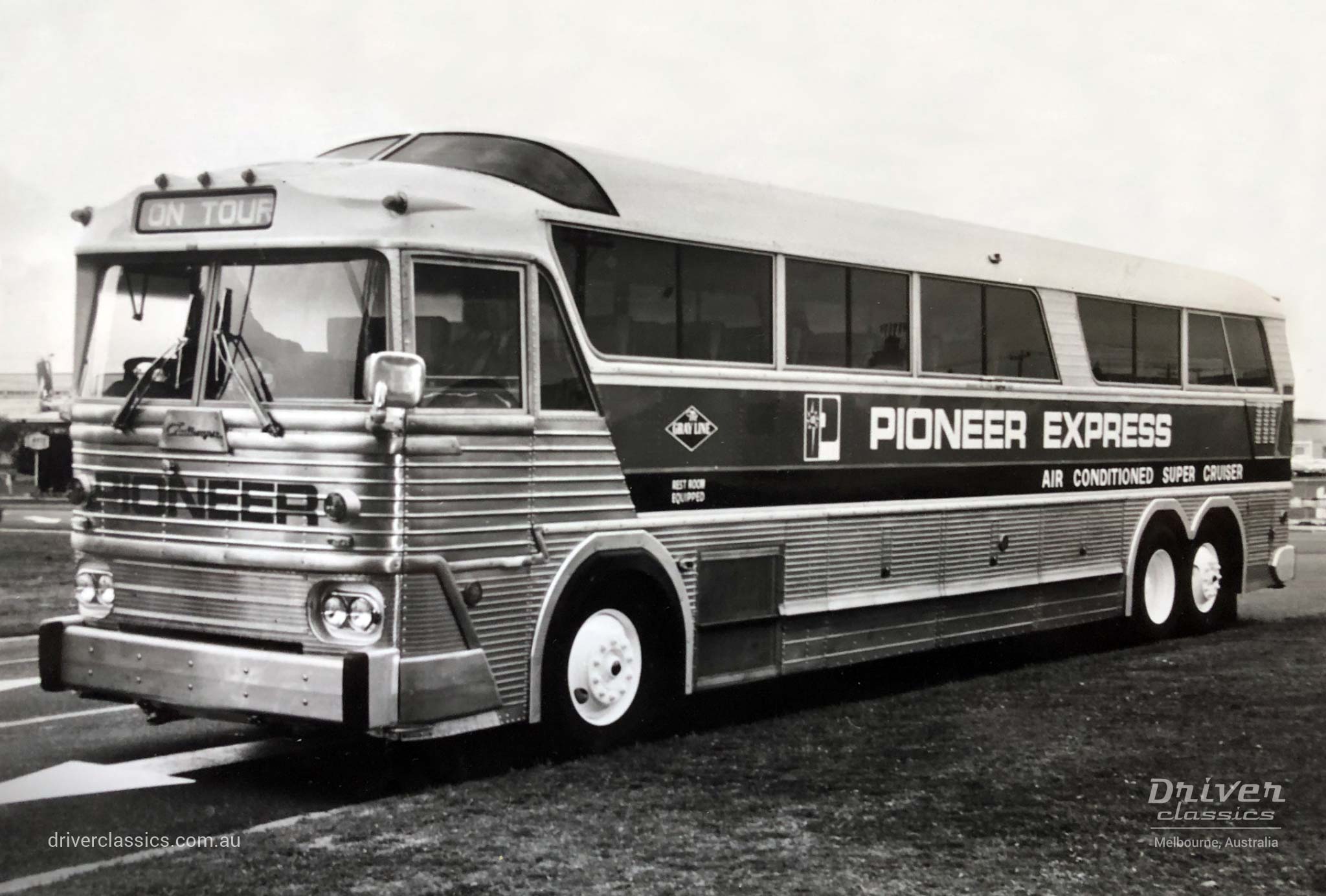
In a bid to increase loads and carrying capacity on services operating across Australia from the east coast to Perth on the west coast, Ansett Pioneer endeavoured to introduce larger second hand ex Greyhound USA, 40 foot GM PD 4501 Scenicruisers, at the same time as the MC-7s. Because of poor conditions on the main cross continent road to Perth, it was deemed inappropriate to use new 40 foot MC-7s, hence the application to utilize large, proven ex Greyhound USA flagship coaches. But it was to no avail, as the dimensions of the Greyhound Scenicruiser, had similar non-compliance issues as the regular 40 foot GMs.
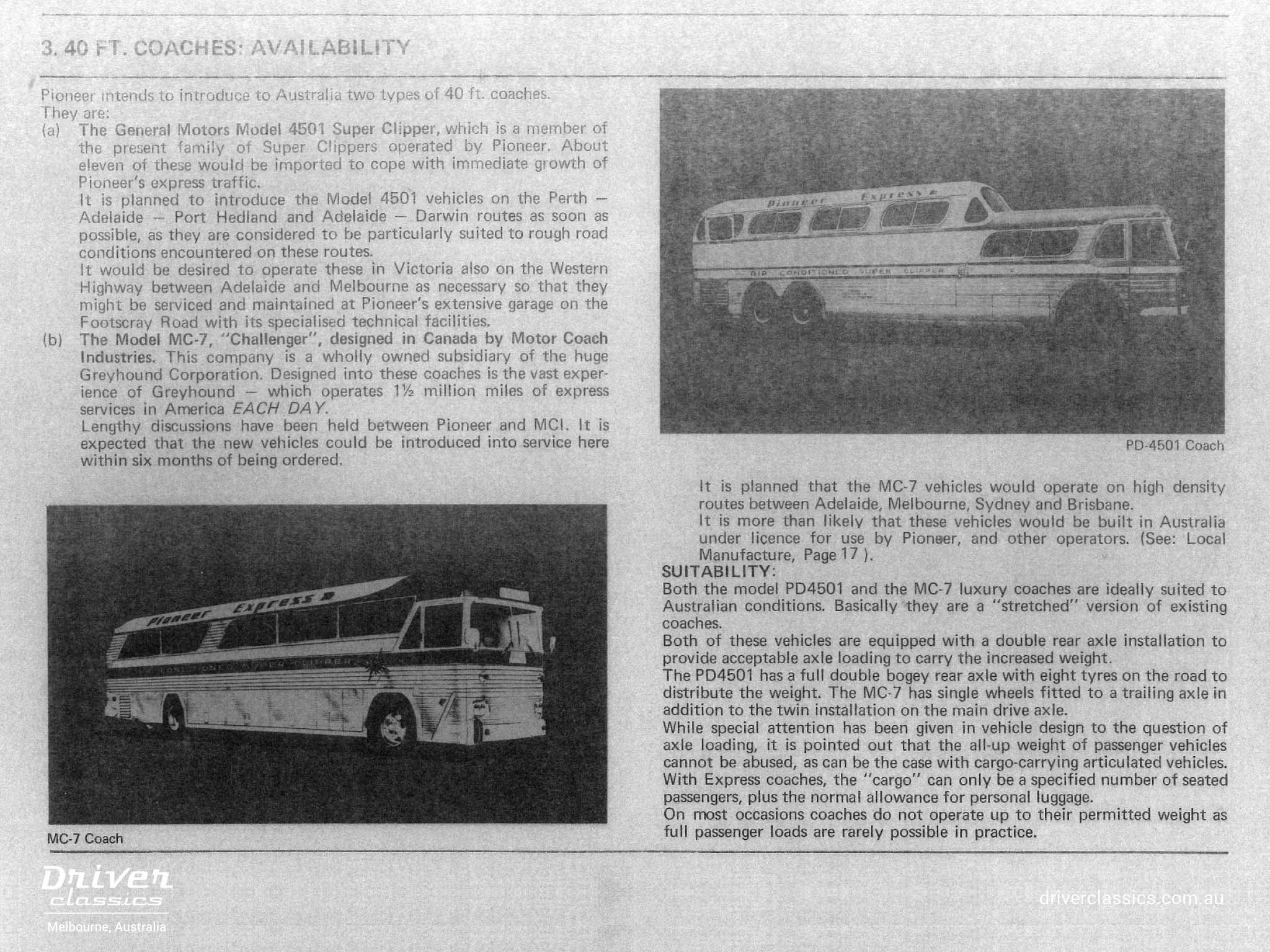
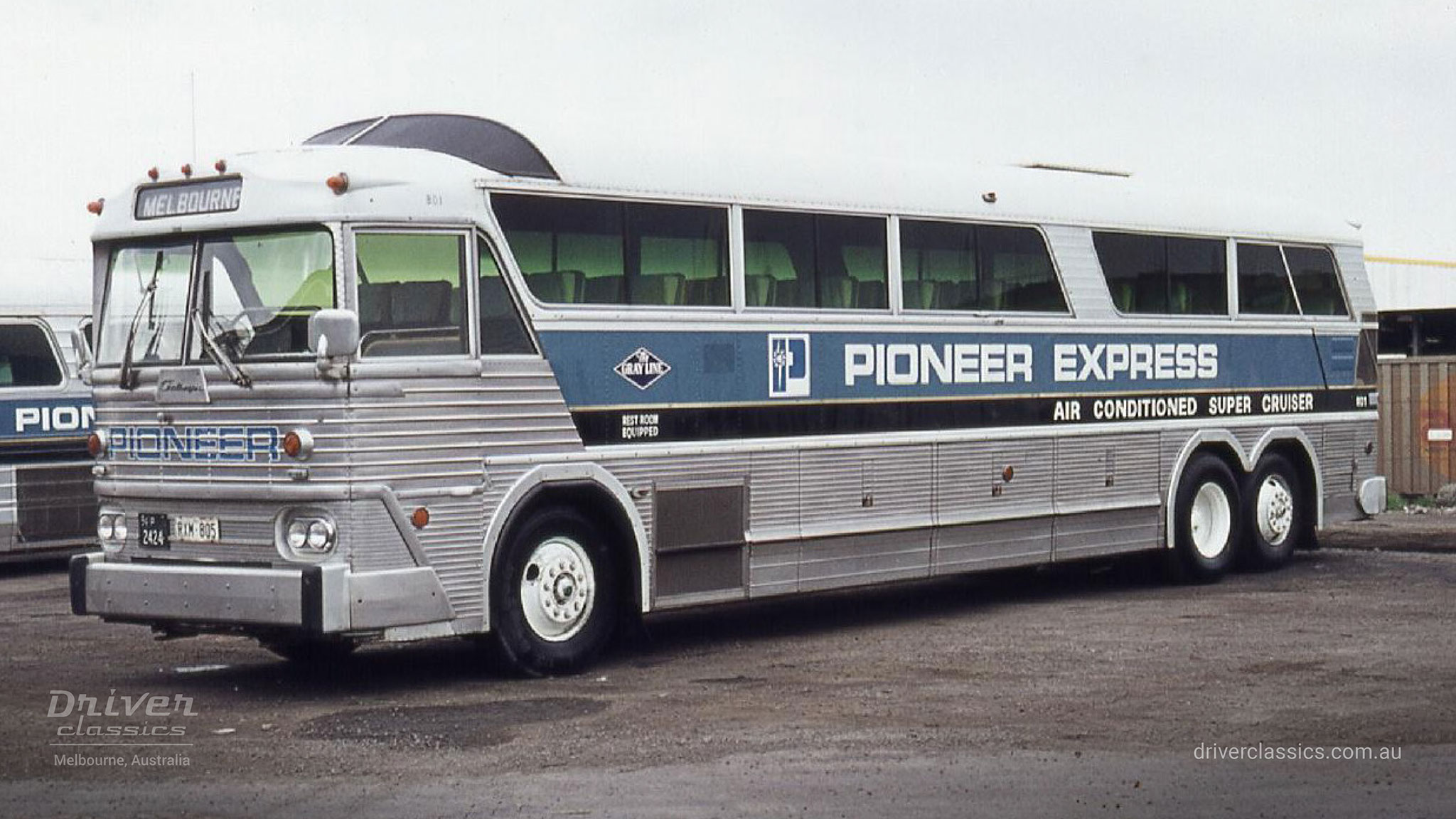
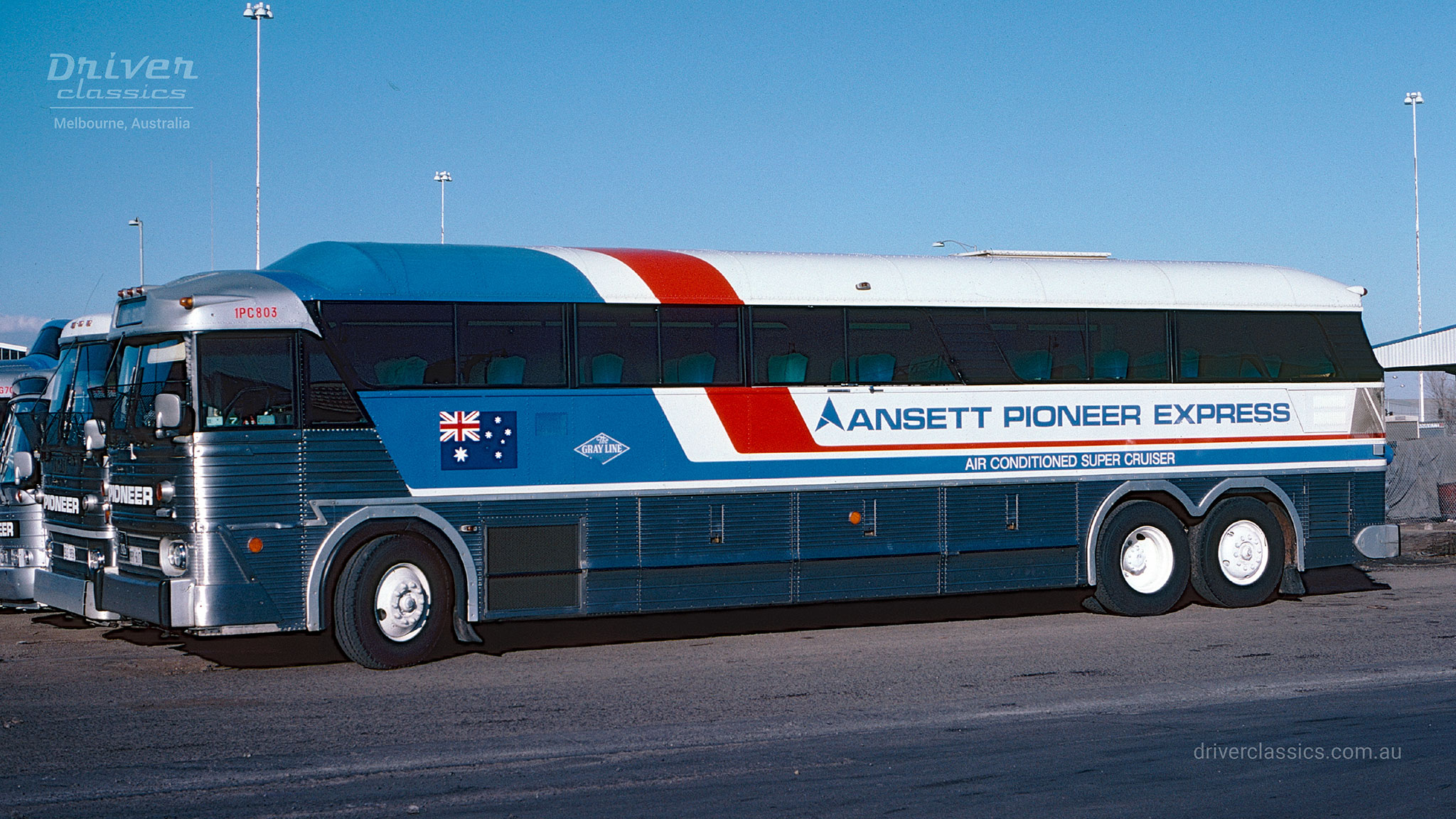
-

1936 Federal
-

1947 Bedford OB
-

1948 GM PD 4151
-

1954 Flxible Clipper
-

1959 Bedford SB3
-

1961 GM PD-4106
-

Ansair Scenicruiser
-

1968 GMC PD 4107
-

1972 MCI MC7
-

1976 MCI MC8
-

1983 GM Denning
-

1984 Eagle Model 10
-

1988 Denning Landseer
-

1989 Eagle Model 20
-

1977 Kenworth W925
-

1950 Dodge Pick Up
-

1959 Cadillac
-

1961 Cadillac
-

1962 Ford Thunderbird
-

1968 Ford Fairlane
EX HERITAGE FLEET
